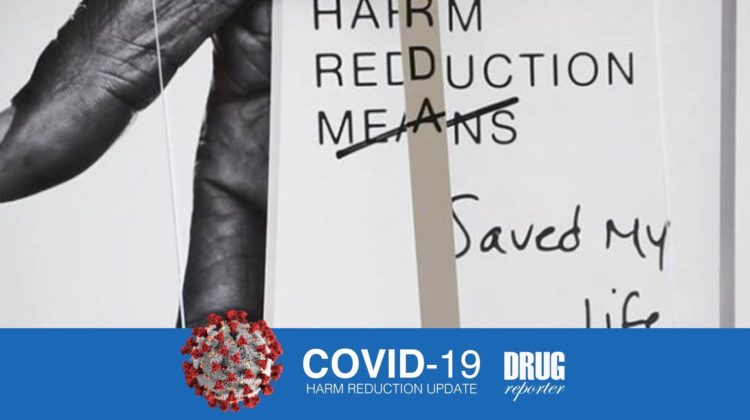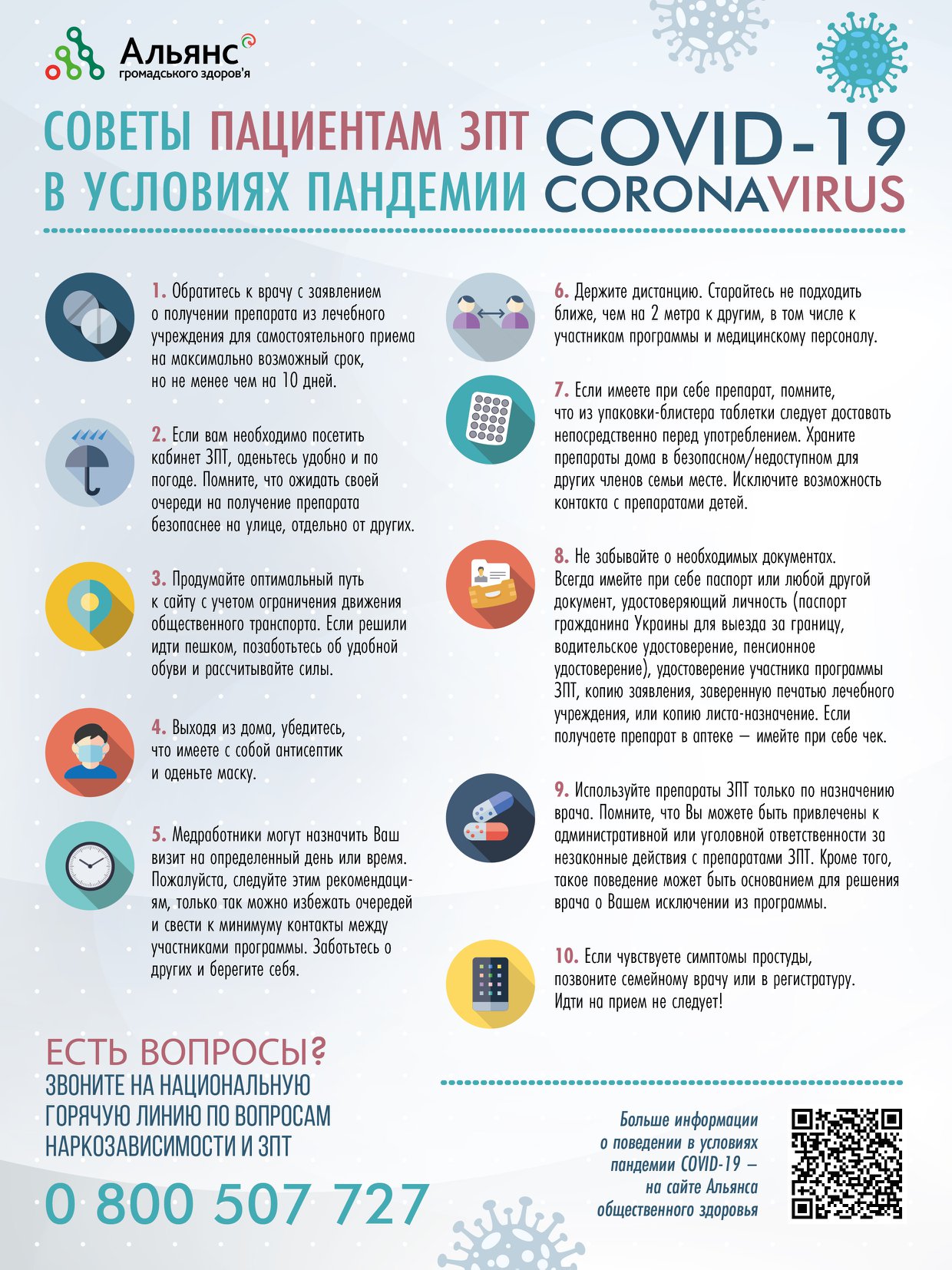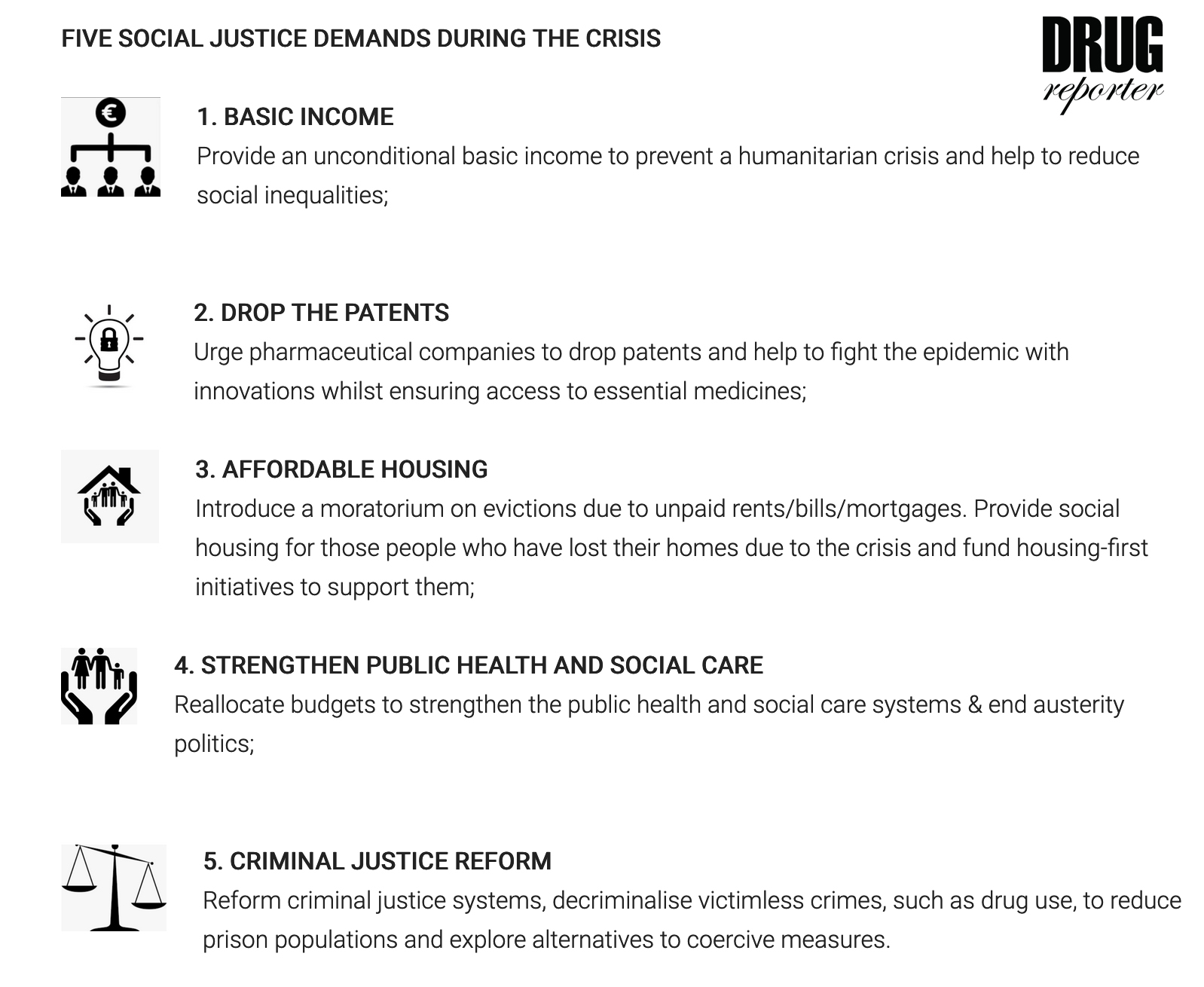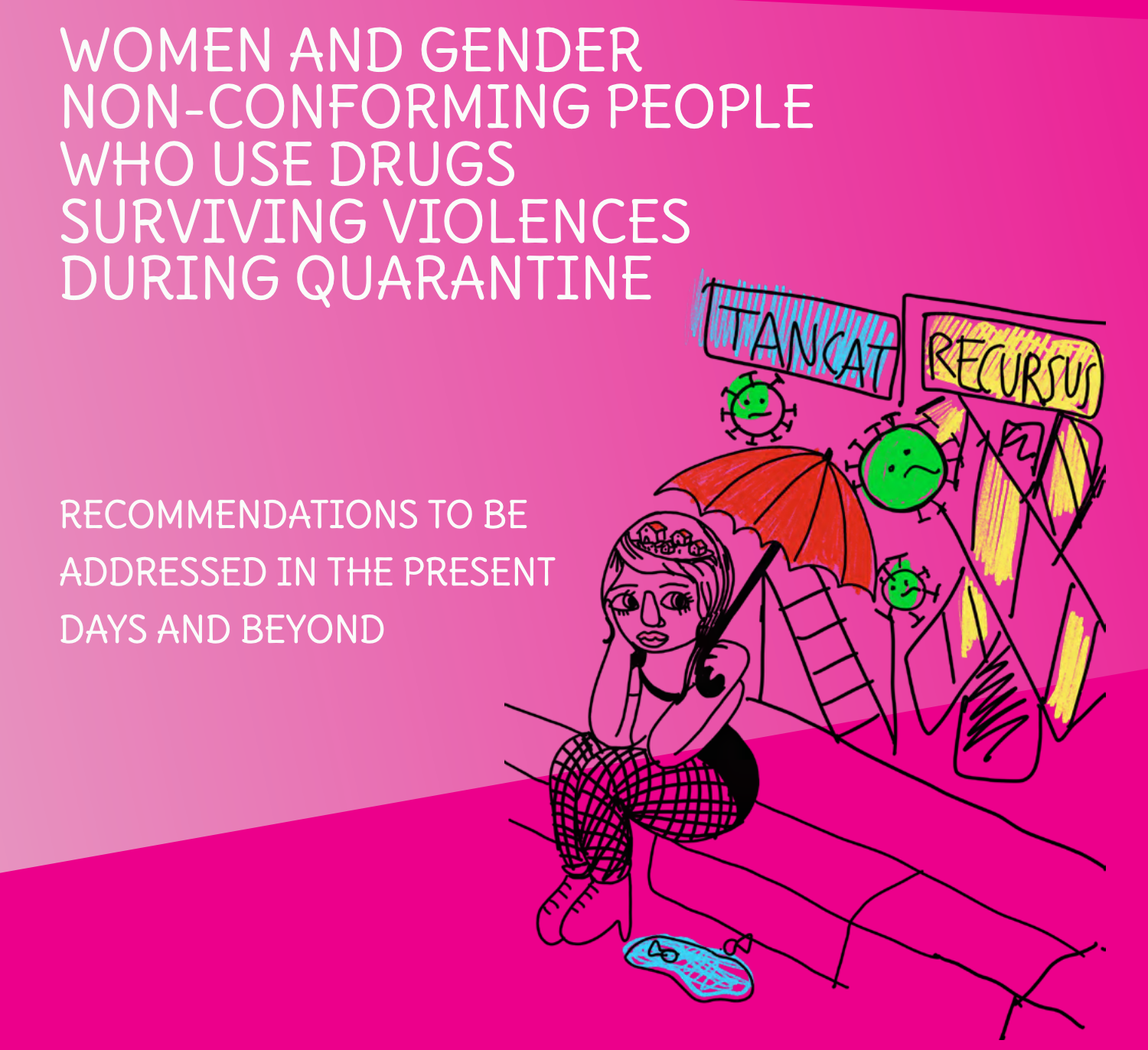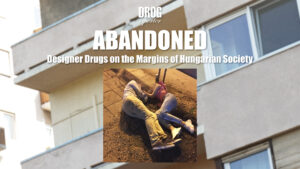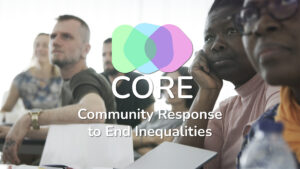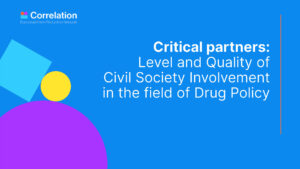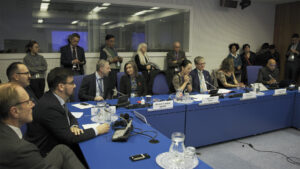On this info page Drugreporter provides regular updates about resources and news on how harm reduction service providers respond to the COVID-19 Epidemic.
This pandemic is a serious threat to harm reduction services that are underfunded, overloaded and have no political support in many countries. Professionals, peers and volunteers working at harm reduction services need to be protected too, with special equipment and training to prevent infections and burning out. If harm reduction services close down, the most vulnerable people of our society will have no connection to the health care system and loose essential support to stay alive. (Click here for useful resources!)
REPORTS FROM EUROPEAN CITIES (in chronological order, from countries of geographical Europe + all other former Soviet Union states)
How can service providers tackle the problems coming with the Covid-19 epidemic across Europe? You can see some examples below! If you would like to share your experiences, please send an email to sarosip(at)rightsreporter.net!
JUNE 24
EECA REGION
Velta Parkhomenko and DUNews
The COVID-19 pandemic is coming to an end in our countries. However, today it is necessary to begin to take stock of what has happened within the community of people who use drugs, and in particular with women of key communities in the region of Eastern Europe and Central Asia (EECA). It is necessary in the very near future to direct our further actions to the problems that have arisen.
Violence. Of course, domestic violence against all women around the world has greatly increased. But if we talk about drug addicted women, then, unfortunately, drug addicted women and sex workers, including those who use drugs, suffer from many times more domestic violence. They suffer not only from partners, but also from relatives. They suffer from the fact that they can’t always leave the house and buy or get the medicines and drugs they need, because they are not allowed to leave the house. At the same time they are threatened, beaten and humiliated.
Resources. In addition to the problem of violence, the problem of limited resources also looms large Women with children used to be able to feed their children, largely due to the fact that the children were in nurseries and schools. During quarantine, those nurseries and schools were closed. A woman is always with her child, and a woman needs to understand how to raise a child, how to feed him, and how to maintain security in the house.
Discrimination. At the same time, drug-addicted women often face discrimination. Because of this, they cannot get a well-paid job. And now many of those who were working lost their jobs because of a pandemic. So many women simply don’t have the money to feed themselves or feed their children.
Yes, the pandemic is ending, the quarantine conditions in our countries are weakening, but how much – if at all – this will solve the problems of drug-addicted women is the main question. Women in key communities will face and live with these challenges for a very long time to come. Unfortunately, the lives and destinies of women in key communities do not concern many people other than themselves.
However, it is important that the state also solve these problems, and it is necessary that drug policy must change in order to allow this. In the countries of the EECA region, the fact of drug use and drug addiction is used as an excuse to remove children from their parents and deprive women of their parental rights.
The pandemic has shone a light on all these problems. Today, it is clear that they are unacceptable, and that change is required in the very near future.
JUNE 5
RIGA, LATVIA
Juris Eksteins, ENPUD, DUNews
The coronavirus epidemic did not bypass Latvia. In our country, a soft quarantine regime was introduced. Transport, retail chains, and pharmacies continued to work. Of course, disinfectants and distance appeared everywhere, but almost everything continued to work in the same mode. Home isolation and maintaining a distance on the street were recommended. The wearing of masks was not mandatory, so the police did not fine anyone. Everything was calm. Of course, fewer people are now in hospitals and clinics.
In hospitals, only planned appointments and planned operations took place. Syringe exchange points operate in the usual way – only the method of dispensing and sharing syringes has changed. The client needs to go to the door, ring the bell, and after that he receives his preventative materials. Also, two buses with a full range of harm reduction services – including syringe exchange, tests, and consultations – drive around the city.
The drug scene has not changed. Amphetamine and marijuana remained accessible in the drug market. Heroin had been substituted by carfentanil on the street even before the crisis. Prices have not changed. The problem is different – it has become difficult to get good quality substances.
The OST program has brought about a change for the better. The medicine was given out on a daily basis before the crisis, now clients can take enough home for a week, or even two. Moreover, in the room where methadone is given, there is a camera. And when you visit, you can talk to the doctor via video link. If you need to write something out, the doctor will either write an electronic prescription or just answer your question. Those who receive buprenorphine are also given an electronic prescription for a month by telephone. Previously, they had to go to the doctor once every two weeks or once a month. Now all this is done electronically.
We have three methadone distribution points in our city and all of them have introduced the same easing of the rules around prescriptions. Of course, everyone wants this to continue. Unfortunately, however, no new patients are being admitted to the OST program during quarantine.
HIV treatment is, however, given to everyone – both new and old clients. And there, too, the rules around the issuance of medication have been greatly relaxed. Previously, you had to come every month for a prescription. Now this is done by phone. You need to call the help desk and sign up, and the next day the answer arrives. Either the client was renewed for a month or there is a need to see a doctor. The community advocates that these innovations remain even after the quarantine is lifted.
MAY 27
VILNIUS, LITHUANIA
Kestutis Butkus, DUNews
As elsewhere, the general situation in Lithuania is quarantine. There is an order from the authorities to wear masks in a places, with lots of people (such as public transport, restaurants (while not eating/ drinking), shops, etc.). No need to wear masks in the parks, or places where there is no lots of people. There are fines if you do not wear a mask. All shops are open. It is planned that quarantine will last in Lithuania until the end of June, however most of places are opened or opening. Lithuania is not in the top ten countries in terms of the number of cases, but the government is in no hurry to cancel quarantine.
With the coronavirus, the community of people who use drugs has faced many problems. In Vilnius and some bigger cities methadone is distributed once per week and in smaller citiesmethadone is distributed twice a week for seven days. In Vilnius, about 250 people receive opioid substitution therapy. Doctors and guards at extradition centers work in masks and gloves. At the same time, clients of programs – usually up to forty people – wait in line for an hour on the small porch of the place of issue. At the same time, one must stand close to the entrance to see the moment when the door opens and the client is called to go inside.
In addition, the number of substitution treatment programs in the country is limited. In March – May new people couldn’t get into the program, they were not accepted, and they were forced to return to street drugs. However now, people with positive HIV status, pregnant women and those who are obliged by the probation can get into the program (approx. 10-15 new people per day in the Republican Center for Addictive Disorders can be accepted).The main street drug in Lithuania is now fentanyl. It must be consumed several times a day. To do this, you need a lot of money, which in quarantine is impossible to get – there is no way to commit minor thefts and there is no way to earn the money legally.
Due to quarantine, the cities are empty, as elsewhere, so people who use drugs stand out and are visible on the streets to the police. In this regard, the criminalisation of such people is growing. The police are particularly active near the Addiction Centers, where methadone is given out – this is considered a zone of increased vigilance. Police officers patrol here additionally and in heavy duty.
In general, we can say that it is the police that decide everything in the country and in the cities. They have been given great authority in connection with quarantine. Police officers catch people who use drugs and take them in for drug testing. In Vilnius, for example, police officers also carried out a raid and ambush near a gypsy camp where drugs can be purchased. But this happens not only in such places, but also everywhere.
Harm reduction programs are also quite limited in their work and the number of services they provide. Prior to quarantine, it was possible to receive preventative materials, such as syringes, wipes, and more, at a mobile point, at the office of the harm reduction organisation, and/or at a pharmacy. Today, a pharmacy is the main access to preventative materials. Mobile clinics is not working at all. Low threshold organization is working but with limited working hours.
Since 2019, substitution therapy in Lithuania has been available in prisons for those who were already on the program before the offense was committed. There is information that access to methadone for prisoners is used today as a means of pressure on them and suppression of conflict situations in connection with the coronavirus pandemic.
MAY 15
BERLIN, GERMANY
Michail Khor and DUNews
To date, the German health system is doing a pretty good job of coping with the epidemic. With approximately the same number of cases as in France, Spain, and Italy, in Germany mortality is an order of magnitude lower. This once again suggests that the health system is working well here. She is truly socially oriented. Migrants, unemployed, old people, children, people with disabilities – almost all have health insurance.
What preventive measures were introduced in Berlin? First of all, those places where people can gather, but which are not of vital importance, were closed. This included, for example, restaurants, large shopping centers, clothing stores, etc.
There are no strict quarantine measures. People are not forbidden to leave the house. People can walk in the parks. They can go out. The only thing called for is to observe security measures.
Hospitals switched mainly to working with patients with coronavirus. That treatment of people that can wait is postponed until better times. Unfortunately, drug treatment has also been included in the list of medical services that can be postponed. For example, treatment of acute withdrawal symptoms or a reduction in the dosage of substitution therapy, which was previously supposed to be carried out in a hospital setting, is now being postponed. The option is being offered to do this gradually at home.
Praxis is a small clinic where patients are treated for HIV infection, receive hepatitis treatment, and are given replacement therapy. They also began to change the work schedule, and definitely for the better. Now they are trying to give out an opioid replacement therapy drug for a greater number of days. If before a person received enough drugs for one week, they are now being given enough for two weeks.
The community of people who use drugs has a small but significant number of people who live on the street and who do not have an apartment and/or permanent residence. The epidemic affected them very seriously. At the very beginning of quarantine they faced a very difficult situation. The shelters in which they spend the night are open until 6-7 in the morning, and then they are sent back onto the street. All rooms where they could rest are closed at this time. All spaces, for example cafes or shopping centers, where homeless people could rest are closed at this time.
Then, fortunately, the Senate of Berlin bought a hotel with 250 rooms. As a result, many people from the community found refuge there. Those staying in the hotel receive one room for four people, with a shower, equipped with a toilet inside, and three meals a day. It was expected that two more such places for 200-300 people would open, but so far this has not happened, and many people still live on the street.
Service organisations that deal with harm reduction programs, such as Fixpunkt, have switched to a five-day work schedule. Before this, mobile points worked three days a week. Thus, all services are provided.
The drug scene has not changed significantly. Dealers are still trading. Prices have not risen. The only difference is that the authorities have begun to pay more attention to ensuring that people do not gather in the subway, because, as in many large cities, dealers are often tied to the subway and metro stations.
MAY 13
MINSK, BELARUS
Sergei Gartsev and DUNews
Unlike the rest of the world, a feature of Belarus during the coronavirus pandemic is that no quarantine has been declared in the country and the danger of the coronavirus as a whole is being denied. Everything is ‘business as usual’ in Belarus: people go to work, children go to school. The President of Belarus openly attends various crowded events and in his speeches says that everything is under control. Meanwhile, the number of patients with coronavirus is growing every day.
Due to the fact that – from the point of view of the state – nothing extraordinary is happening in the country, all government agencies continue to operate as usual, including those that work with people who use drugs. So, in Belarus, Opioid Substitution Therapy does not stand out. There is only methadone in the programs – Buprenorphine is not registered in the country and is not provided. Customers are forced to travel to receive their prescription in person every day. This is happening despite the virus: there are still no handouts of OST in Belarus. For two years now, the Ministry of Health has been trying to approve the regulations and the clinical protocol to improve the quality and access to the treatment program for opioid dependence, so that OST drugs can be handed out, but this has not yet been adopted.
Currently, there are about 700 people in the OST program in the country. Although in 2013 there were 1,048 people, in 2015 a transition to public (state) financing began, and the number of patients is decreasing every year. The main problems in the context of access to medicines for OST program participants are: queues in offices (in many cities, methadone is not transported to hospitals, especially district hospitals), and the fact that access to OST also increases the risk of loss of parental and labour rights.
Harm reduction services work. Customers can safely receive the necessary services. A mobile syringe exchange and testing center travels around the city. This is good, but on the other hand, it would be wise to use the pandemic period as an opportunity to modernise harm reduction services, including Opioid Substitution Therapy.
MAY 11
BUDAPEST, HUNGARY
Peter Sarosi, RRF
The Mayor of Budapest Defies Fear-mongering by Hosting Homeless People at the City Hall
After the ruling Fidesz party launched a smear campaign against opening a new homeless shelter in the Csepel neighbourhood of Budapest, the mayor decided to allow the homeless to stay at City Hall. Now Fidesz is attacking him for this action, claiming that it is part of a conspiracy by George Soros against Hungary.
In many European cities we can see generous measures implemented by city leaders to expand shelters for homeless people, who are one of the most vulnerable groups during the Covid-19 epidemic.
When the Mayor of Budapest, Gergely Karácsony (from the opposition Párbeszéd party) initiated plans to create a new shelter in the 21st district, Csepel, to ease overcrowding, the local district mayor (who belongs to the ruling party) launched a campaign against the plan. He installed posters on the streets, calling people to sign an online petition to protest against opening a homeless shelter in their neighbourhood. The pro-government press is mocking Mr. Karácsony by claiming that he “punishes Csepel by sending the homeless” there.
The Mayor of Budapest had to give up the plan to open the new shelter in Csepel and decided to instead host homeless people at City Hall. The building the mayor has opened for homeless people is currently being renovated. In the future it will house the Budapest Gallery, but for now it will shelter 500 homeless people. “It is not acceptable for us to reject those who are in the most difficult situation,” said Mr. Karácsony. “We could use the building in Csepel, which is our property, but we will host homeless people in our own City Hall building. We hope that we can save their health and lives.”
The ruling Fidesz party disagrees and shows no signs of social solidarity. What’s more, the District Mayor of the 5th District, where the City Hall is located, made a statement in the pro-government press against the plan to host homeless people there. According to Szilárd Németh, a Fidesz politician, the homeless shelter can be linked to the global conspiracy of George Soros against Hungary.
In reality, rather than plotting against Hungary, George Soros generously donated 1 million USD to Budapest to fight the Covid-19 crisis. From this donation the city bought masks and tests to support health hand social workers.
Homeless shelters had been extremely overwhelmed and overcrowded even before the Covid-19 epidemic in Hungary, where a ban on living on the street was added to the constitution in 2018, thereby criminalising homelessness. This situation has only escalated since the lockdown started. Many seasonal workers who lived at workers’ hostels lost their income and homes, and thousands of new people are turning up at the shelters and day kitchens as a consequence. There are reported outbreaks at multiple shelters now, despite quarantine measures. It was only the city council that provided protective equipment and tests to the clients and staff of shelters.
MAY 6
KYIV, UKRAINE
Anton Basenko and DUNews
DUNews produced a video about the situation in Ukraine in regard to harm reduction responses to the COVID-19 crisis. Please watch and share!
For a detailed description of the Ukrainian situation, please scroll down to April 9.
Take care of yourself and be healthy!
MAY 1
MOSCOW, RUSSIA
Maxim Malyshev and DUNews
How does the community of people who use drugs in Moscow survive during the COVID-19 quarantine? What are the harm reduction services today? All the answers are in the movie. Maxim Malyshev from Andrey Rylkov Foundation answers.
APRIL 29
TBILISI, GEORGIA
Giorgi Gogua and DUNews
Like many countries in the world, Georgia has been quarantined. This means that the movement of people is restricted, and a curfew is imposed at night. Several cities in the country are fully locked down. Movement in these cities is completely prohibited: no one can enter them, and no one can leave them.
In Georgia, about 9,000 people are currently receiving treatment in opioid substitution therapy (OST) programs. Due to the COVID-19 pandemic, the country decided to give these individuals enough methadone and buprenorphine for self-administration for a period of 5 days at once. This is a huge victory for the community of people who use drugs. It hadn’t worked for years before. In many ways, this decision was made thanks to the actions of the community of people who use drugs.
For people who live in cities where a full quarantine has been introduced, special medical services deliver 7 days’ worth of OST drugs to their homes. There are 34 such patients in the cities of Bolnisi and Marneuli.
People who are in hospitals and other medical institutions throughout Georgia are also provided with substitution therapy. Approximately 50 people are currently in hospital, of which 45 are residents of Georgia and participants in the OST program, who have returned from other countries and are under quarantine for this reason. All of them retained access to methadone or buprenorphine treatment.
In the prison system in Georgia, 200 people are currently receiving OST. According to the Center for Mental Health and Drug Abuse Prevention, prisoners receive substitution therapy without problems.
No cases of overdose or sale of OST drugs have been recorded in the country since the handover of replacement therapy drugs began. This is an argument to ensure that after the end of the quarantine, the handover continues and is not cancelled.
APRIL 27
AMSTERDAM, THE NETHERLANDS
Aukje Polder and Cedric Chavet, AMOC
APRIL 24
ATHENS, GREECE
Marianella Kloka, PRAKSIS
OKANA, the national drug agency in Greece, created a permanent outpatient service in the center of Athens (46, Kapodistriou str.). The service provides protective equipment for its staff members and clients. Social workers have started a street outreach service again since last week. They distribute safer use kits, hand sanitisers, disposable face masks, bananas and water.
In collaboration with the Municipality of Thessaloniki, the second largest city in Greece, a shelter has been opened for 14 drug users. It is located in a guest house in the area of International Exhibition Center. Those residents who are in need will have access to the OST medications, in an accelerated procedure.
Shelter for drug users in Athens
On the 22nd of April the city of Athens opened the first shelter for homeless people who use drugs. An old hotel has been renovated and now can accept from 70 to 140 homeless people who use drugs for a period up to 6 months. The municipality of Athens leads the project in the collaboration with OKANA and KETHEA, the Greek Network of Drug Users (PenUPS), PRAKSIS, Doctors of the World, Positive Voice, Prometheus, Steps and with the support of a faith based organisation close to the Orthodox Church (Apostoli).
A range of services will be available. The shelter will be linked to both abstinence-based and OST programs, according to the needs of clients. They will have access to psycho-social, medical, legal services and re-integration programs. However, drug use is not allowed within the premises and no place is provided inside the building that can be used as a drug consumption room. “It is important to highlight that even though Greece has the legal frame for DCRs for more than a year now, no such facility has officially opened,” says Marianella Kloka from PRAKSIS. “If DCRs will not open in Athens, it will be really difficult to eliminate open drug scenes without violating the dignity of people, without violent attacks and other repressive measures from the police, what we have been witnessing for some months now in the streets of Athens.” (Video message from Athen’s mayor)
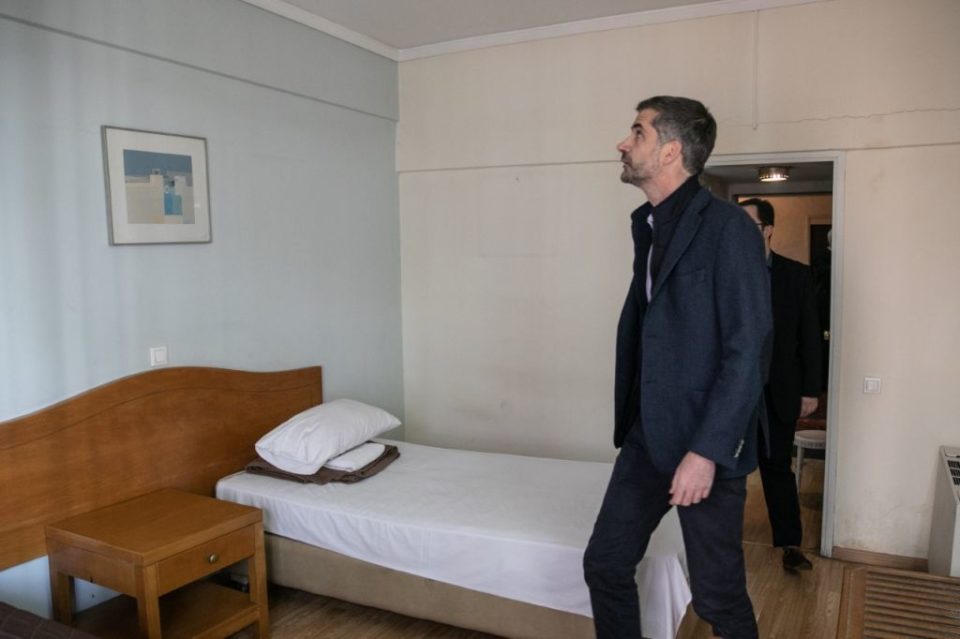
APRIL 23
TEMIRTAU, KAZAKHSTAN
Valentina Mankieva and DUNews
COVID-19: Chronicles of harm reduction in countries of the Eastern Europe and Central Asia (EECA) region
In Kazakhstan today, there is a very difficult situation for people who use drugs. The country has been quarantined. There are 283 people in the opioid substitution therapy (OST) program, and 13 OST sites are operating in 13 cities across the country. But it is prohibited to hand out methadone for extended periods of time for home use. At the same time, program clients are forced to travel to methadone dispensaries every day, risking сcontracting the coronavirus.
The Forum of People Who Use Drugs in Kazakhstan has written an official letter to the General Director of the Republican Scientific and Practical Center for Mental Health, who is responsible for the work of opioid substitution therapy programs. In this letter, the activists asked for permission to hand out enough OST drugs for a few days of self-administration at home. However, this state agency refused, citing that this issue requires discussion and coordination with law enforcement agencies.
Before the quarantine was announced, OST sites were open for only one hour a day – from 8am to 9am. The opening hours were increased to 3 hours a day – from 8am to 11am. This is due to the fact that many participants in OST programs live very far from methadone distribution points in other cities, and have to travel long distances due to roadside checks. However, this does not help the situation much. People do not have money to travel every day, or they are late to sites. If they do not attend the program for two days, they are excluded from the program and lose their right to receive methadone there.
Kazakhstan Forum of PWUD continues to advocate for OST participants in all regions of the country to be able to submit written requests for the possibility of receiving methadone in their homes. The forum lawyer has developed a template for requests from patients and organisations to OST sites on these issues. However, to date, this problem has not been resolved for the community.
APRIL 20
NARVA, ESTONIA Sergey Sisojev and DUNews
COVID-19: Chronicles of harm reduction in countries of the Eastern Europe and Central Asia (EECA) region.
On March 11, Estonia declared a state of emergency related to the COVID-19 pandemic. The Institute for health development, an organization that funds harm reduction programs in Estonia, issued an official statement. Its essence is one thing – customers should not be left without services!
Currently, there are about 900 people in opioid substitution therapy (OST) programs in Estonia. The work of harm reduction points, outreach workers, and OST distribution centers has been reorganized in such a way as to minimize the risk of infection for clients and employees.
The “SÜTIK” program (support for people with drug addiction) was switched to online mode, and this approach is no less effective than working offline before the declaration of a state of emergency in the country. Since all state structures operate remotely, officials and employees of all services are available by phone and on the Internet. This allows you to quickly help in solving customer issues. In many cases, this even speeds up the process.
Outreach workers continue their work on exchanging and distributing injecting equipment, observing the 2+2 rule (two people at a distance of two meters). Plus, they consult in person and over the phone.
OST issuing centers throughout Estonia also continue to operate. Immediately after the state of emergency was declared, it was decided to hand out OST drugs for a period of 3 to 5 days (each case is considered individually). To avoid a mass influx of customers to the center at one time, they were divided into groups and distributed on different days. The working hours of the OST centers were reduced: before the quarantine, they worked every day until the evening, now-every day until 12 o’clock in the afternoon. This time is sufficient, given that the program participants receive the drug on different days and at different times. They enter the office one at a time. If you have a certificate that a person is a recipient of OST drugs (from any country), they can get access to treatment during the day.
If the OST program clients are ill or quarantined, the drug is delivered to their homes in compliance with all safety measures. It is delivered by employees of OST sites, members of the community of people who use drugs, employees of the “SÜTIK” program. People who are in rehabilitation centers continue their treatment. New people are not accepted there until the end of the quarantine.
There are also restrictions on the movement of prisoners and quarantines in prisons. Contact with staff is kept to a minimum. Calls are made only from cameras. Walking, various classes, and work canceled. OST medications are provided to prisoners on a regular basis. There is no exchange of syringes in prisons, and never has been.
Personal protective equipment is not included in the range of harm reduction programs. In this situation, the state directs all resources to ensure the safety of personnel, so that employees ensure the smooth functioning of programs. Program employees are currently equipped with masks, gloves, and disinfectants. Their use is strictly regulated and limited, since no one knows how long the quarantine will last and whether these stocks will last for the entire time.
APRIL 17
BARCELONA, SPAIN
Núria Calzeda, Energy Control, Pedro Quesada, UNAD
APRIL 16
WARSAW, POLAND
Magda Bartnik, Prekursor Foundation
Amid COVID-19 pandemic, lockdown-type control measures in Poland started in the second week of March and were strengthened at the end of the month, requiring individuals walking in streets to be separated by two meters, closing parks and boulevards and imposing a statewide stay-at-home order. Due to the restrictions in regard to the provision of outpatient services such as psychiatric care, addiction treatment, harm reduction and social care, all stationary services had to be suspended – they were either continued online or, if it wasn’t possible, they were stopped.
Due to these decisions, the Foundation, like many other organizations, suspended its stationary activities. However, the staff is constantly in contact with clients, who experience even greater discrimination in the health and social care system than before.
While the Foundation’s drop-in centre (the only one in the capital) has been temporarily closed, all work is done every day through outreach and by phone. Peers are part of the team, helping to maintain contact with people who use drugs and to reach new clients. In the first 2 weeks, satisfying basic needs related to access to food, medical materials, injecting equipment, disinfectants became the priority.
“A large number of recipients of our service are people with a disability certificate, homeless, many have open wounds or skin ulcers,” says Magda Bartnik. “The current situation has restricted access for many people to places with running water, where they can take care of hygiene and change their clothes, make a dressing and receive food. This is a major contributor to the deterioration of their health and social situation, leading to increasing exclusion and life-threatening conditions.” Especially homeless clients are experiencing dramatic difficulties in obtaining food, and due to the suspension of Drop-in, they have been deprived of the opportunity to eat a hot meal or drink coffee. Or to spend time in warm and safe space.
Many of our clients, because they worked on a contract, illegally or they panhandled, are now without the means to live and to buy food and medicines. Not to mention gaining money to buy drugs. Withdrawals are starting to be a big problem and rapidly changing drug market only poses a greater threat for people who use illicit substances.
At the very beginning of quarantine, people who inject drugs, received needles and syringes needed for 4 weeks. Because outreach work has become our core activity now, they can get injecting equipment regularly. Apart of running NSP, teams support clients experiencing violence (physical, mental, sexual or economic), mental health crisis and now the threat and fear of coronavirus.
There is lack of accurate information about the pandemic in media and among communities. In response to that, the Foundation has established a group on Facebook dedicated to our clients which includes verified information about the virus, changes in regulations, recommendations on preventing infections. Contact with clients allows to diagnose problems and respond to the needs of individuals on an ongoing basis.
The OST programs are operating – patients receive methadone for 1 or 2 weeks period, but some still have to collect their substitute every day. Individual consultations and support groups have been suspended. Medical, psychiatric help and referral to other health services have been limited, with minimum staff involved while implementing strict safety measures. However, there is one OST program in Warsaw, where admission is open and where patients can be included in treatment on an outpatient basis.
Drug consumption rooms, naloxone distribution or drug checking are nonexistent in Poland. HIV and HepC testing among drug users has been suspended. Moving activities to online platforms is challenging, especially considering the fact that harm reduction approach is based on direct contact with clients, which enables building relation and trust.
“As long as homelessness system is concerned, it is fair to say that in the wake of pandemic, due to strict quarantine measures, it ceased to exist,” says Magda Bartnik. “Food collection points, heating and accommodation facilities were mostly closed. All or almost all of them from the inside – no one from outside can enter them. Just like treatment and social care facilities, they don’t accept new admissions, leaving those who already were not connected to any sort of care institutions on their own.” There is just one mobile unit, operating in Warsaw, offering basic support to homeless people. The support system that barely functioned was suspended, but life on the street did not move to any house. Because very often there is no home. This especially applies to people who use drugs and who are homeless. They were never really welcome in such facilities. Nothing changed in this regard. “Harm reduction was already in crisis, but what’s happening now with people who use drugs is a fight for survival,” says Bartnik.
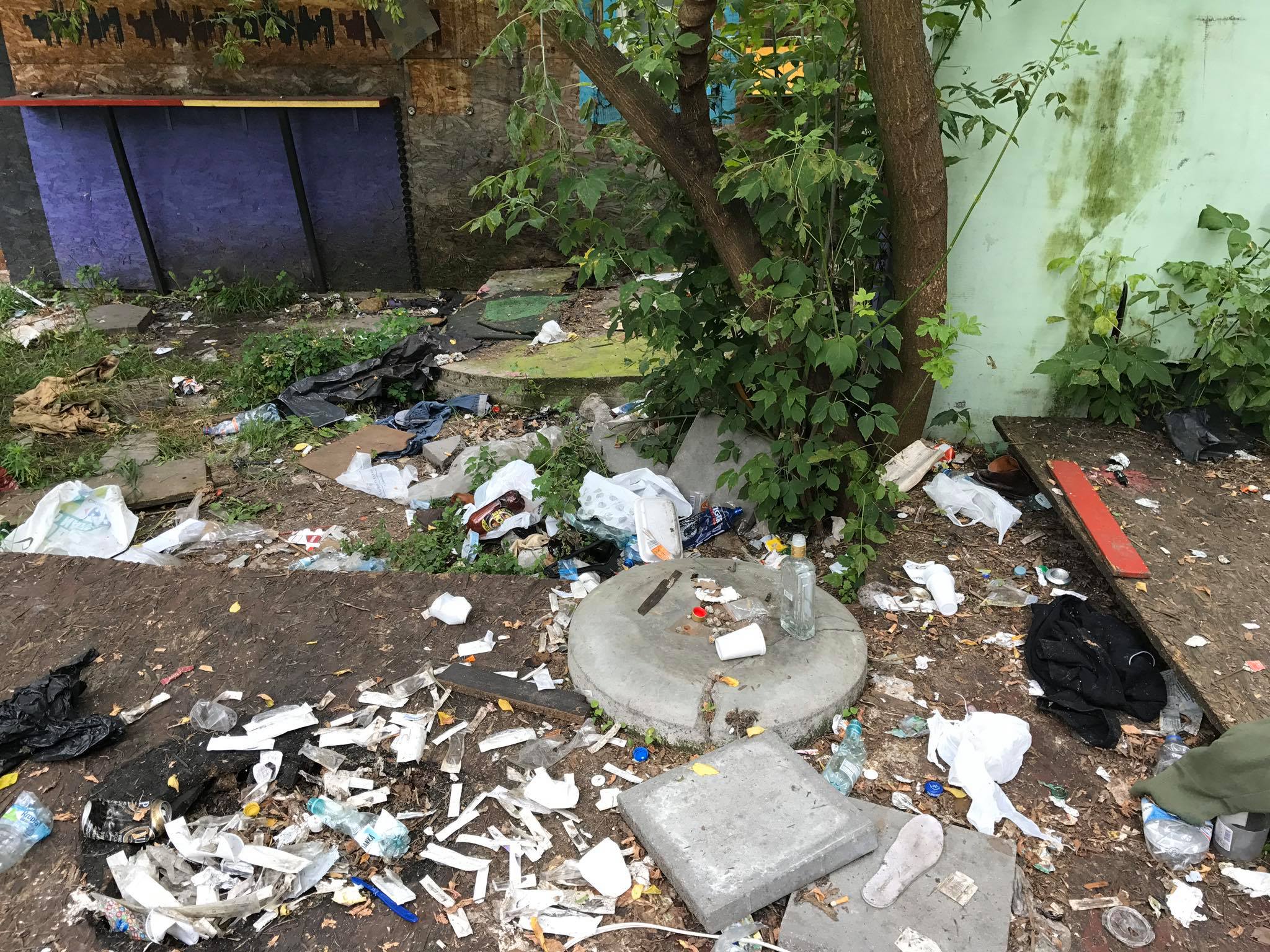
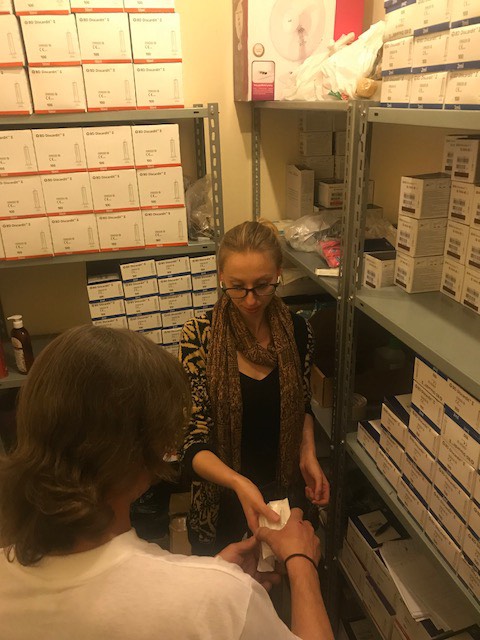
APRIL 15
MOSCOW, RUSSIA
Alexander Levin, DUNews, ENPUD
“The COVID-19 epidemic has made life much more difficult for people who use drugs in Russia,” says Sasha Levin from DUNews. “It changes the way of their life. Today, it is more difficult for them to make a living, to buy drugs and to have access to medical care and harm reduction services. In addition, opiate substitution treatment is prohibited by law in Russia. The chances that the government will ever allow OST here are zero.”
Russia has been quarantined for several weeks now. This means that people are not allowed to go outside, everything is closed. Employees are sent to an unpaid leave for an indefinite time. “The state deceives people and does not declare an emergency in the country,” says Levin. “This gives the Russian government no obligation to compensate people for losses due to the coronavirus epidemic, since everyone is on ‘holiday’ so there is no public emergency.”
Many people lost their jobs and income. To make a living is especially difficult for people who use drugs. Previously, drug users could earn money from various legal and illegal jobs. If people who are dependent cannot access drugs they feel sick from withdrawal. What they can do is stealing from stores or do sex work – but today it is increasingly difficult.
“The situation with access to substances can be described in one phrase: everything is complicated,” says Levin. “For a long time in Russia, the main method of selling and buying drugs is the DarkNet. The main cryptomarket for the sale of psychotropic substance is called Hydra, it is used by drug users across the country. However, due to the fact that in many cities you cannot go out and move around the cities, buying drugs has become a big problem.”
The lockdown has certainly affected the logistics of drug distribution. The sale of drugs via the Darknet now depends on “kladmens”, that is, people who hide drugs in special places in cities. Another factor is that people who use drugs themselves are very afraid of the police. There are no people on the streets, and every person who leaves the house immediately attracts the attention of the police. Many of the consumers who do not experience financial problems have stored substances for a long time. They are concerned that they will face difficulties in purchasing them in the future. When the government announced quarantine measures people started to store drugs expecting that a general ban on leaving their homes will be introduced soon – but this has not happened yet.
In a situation, in which opioid substitution therapy is prohibited by law in Russia, people who use drugs have no money and no way to buy them. The market for selling drugs in the DarkNet on the Hydra Internet site has almost ceased to exist, the chance to survive in this situation is if people detox at home or go to specialized drug treatment and rehabilitation services to undergo detox. However, due to the quarantine measures, such services no longer accept new admissions. Now they only discharge patients admitted earlier and do not accept new patients until the situation changes.
Even if people who use drugs have still access to drugs, the harm reductions services they used before the crisis are now unavailable. In many major cities, such as Moscow and Saint Petersburg, harm reduction projects have stopped. They no longer hand out sterile needles, syringes and condoms and do not test clients for HIV. Most consultations and other services moved to online platforms. However, in some cities, such as Orenburg, Kaliningrad, Yekaterinburg, where urban transportation is not blocked completely, harm reduction programs still work with some restrictions. The only alternatives are pharmacies, which are still open and sell needles.
“The consequences of the epidemic for people who use drugs in Russia are likely to become obvious and noticeable by the end of April,” says Sasha Levin. “The country’s quarantine is becoming stricter every day, and there are less and less opportunities to live a normal life. In these circumstances, the consequences of the repressive drug policy in Russia become more obvious. All this can be called a disaster for the community of people who use drugs.”
APRIL 14
PORTO, PORTUGAL
Sérgio Rodrigues, GIRUGaia– APDES
Some thoughts about how to support people who use drugs during the crisis by Sérgio Rodrigues from APDES (translated to English from Portugues):
“I see that lot of people are concerned because people who use drugs do not accept to go to a shelter where they would be quarantined. The reason why people who use psychoactive substances, people who use alcohol and another vulnerable populations do not accept this is because we are not proposing them the best solution.
First, we should put all of our prejudice, morals and the ideal of the drug-free world behind us. Right now, the correct message is: save human lives, not only the lives of particular people but all lives. We must open a space where people can continue to use their substances in a safe and controlled environment, with technicians and peers responsible for managing the space, who could also manage alcohol consumption there.
Right now I don’t see a better solution. People who use psychoactive substances, sex workers, homeless and migrant people, are also people who should be respected and treated like any other human being. In this very difficult period it is time to say that there is a solution. If we create a safer space for people we can support them in many ways, address specific health and social needs, even provide detoxification for anyone who is in need. We can educate them of the best way to protect themselves from COVID 19 and manage their own use and prevent overdoses. There are solutions even if those who make decisions do not know them, or don’t want to accept them. If they are really concerned about thesehuman beings just stop being hypocrits at this difficult moment. Every lives matter.”
APRIL 13
BALTI, MOLDVA
Vitali Rabinciuc and DUNews
n Moldova, access to opioid substitution therapy (OST) has been adjusted to quarantine measures. In cities such as Chisinau, Balti, Falesti and Ungheni, methadone is now given out for one week to everyone without exception. In Kishinev, take home buprenorphine is provided for 5 days or more. OST clinics work 2 days a week in Chisinau from March 23, and in Balti. Patients were divided into 2 groups to avoid overcrowding. The community of people who use drugs continues to work with medical staff.
There are no new admissions to OST programs in Chisinau, although this is not consistent with the OST treatment Protocol. This is due to the fact that people are not examined, since district drug specialists, whose function is to conduct the examination procedure, are on leave from work and are under home quarantine. People who need OST are forced to go to the emergency Department of a drug treatment hospital for inpatient admission. They receive medication for withdrawal symptoms and detoxification. Doctors use neuroleptics and other similar drugs for people who use “salts” (mephedrone, a-PVP, etc.) and other stimulants.
Things are different in Balti. New admissions are allowed and doctors follow the Protocol.
At the same time, hospitalization in Chisinau is only possible for medical insurance holders. The doctors say that they do not have enough resources in the current situation, as many are on home quarantine. This approach is also inconsistent with the conditions set out in the national drug treatment program. The program says that assistance must be provided regardless of whether a person has health insurance or not.
In Balti, if a person has asked for help, he, as before, receives a referral to a polyclinic from a narcologist and is freely hospitalized, regardless of insurance status. A person in an emergency can use the outpatient service.
A separate problem today is the supply of methadone in the country. The quarantine revealed a problem of interruptions, the reason for which is the lack of a supply of methadone. There is a stock of the drug in the warehouse, but it is not enough. Previously, methadone was supplied from Italy, but due to the quarantine and border closures, the drug cannot be sent from there to Moldova. Now there is an agreement that methadone will be supplied from Ukraine, but the situation is still uncertain.
There are stationary and mobile harm reduction centers in the country, as well as outreach work. The kit for people who use drugs today includes syringes, alcohol wipes and condoms. Masks, gloves, and hand sanitizers in the form of antibacterial gel are not included in handouts, although the need for them is high.
APRIL 10
ATHENS, GREECE
Marianela Kloka, Praksis
Outreach work
Doctors of the World provides services to homeless people, including the distribution of prevention kits with soap, antiseptic gel, masks and gloves. They have active hotline for information and they distribute a 2-pager leaflet with information for COVID-19 in Greek. They warn the public that homeless people almost disappeared after EODY, the national health institute, introduced lockdown measures and ordered the soup kitchens to close.
The street outreach team of the NGO PRAKSIS works on the streets of Athens every day, it provides materials for safer use (syringes, cookers, etc.), gloves, masks, antiseptic wipes and information leaflets in 5 languages.
The NGO Steps has an mobile unit as well, with daily presence in Athens. It distributes leaflets with information about COVID-19 in 5 languages, soaps, gloves, syringes, cookers, gauze, antiseptic wipes, antiseptic gel, food, water, sleeping bags and blankets. They emphasised that street work is very difficult because people who use drugs are under constant persecution by the police.
Latest update
Positive Voice and Prometheus (both patient’s organizations) do outreach work daily in Athens. They provide materials for safer use, snacks/food*, water*, condoms and lubricants, gloves* and antiseptic wipes* (*when available). They use a mobile unit to provide counselling and link people to other available services, according to their needs. Apart from people who use drugs, they also provide their services to sex workers and homeless people.
APRIL 9
KYIV, UKRAINE
Igor Kuzmenko, DUNews, ENPUD
Harm reduction services, including opiate substitution therapy sites, continue to work during the lockdown in Ukraine. Of course, some changes have been implemented in accordance with quarantine restrictions, such as the introduction of emergency measures in some regions of Ukraine. NGOs started to use online consultations instead of face-to-face meetings. The working hours of facilities were reduced, mandatory masks were introduced, etc.
Almost all clients of OST programs in Ukraine now receive take home medications for a longer period, ranging from 7 to 10 days. At some sites, clients can take their medicine for 15 or even 30 days. Unfortunately, there are places where clients have to visit the clinic every day to take their medication. But there the number of these sites are no more than 10 out of more than 200 sites of substitution therapy in Ukraine. That is, most OST programs introduced longer take away periods.
Much attention is paid by professionals and activists to inform and support the clients of OST programs. The Alliance of Public Health has developed practical recommendations for clients in the conditions of COVID-19 pandemic (Photo № 2). There are regular publications on social media on the pages of the All-Ukrainian Network of People who Use Drugs and The National Hotline on drug addiction and OST. These allow clients of OST programs not only to be aware of important news, but also to share information about what is happening in their own cities.
“The National Hotline on drug addiction and OST” is currently receiving an increasing number of calls. “And this is not surprising, because for many clients of the programs, the Hotline is the last chance to get the necessary help, the last chance for justice,” says Kouzmenko, who is himself an OST client. “Thus, just recently, after an appeal by the staff of the Hope and Trust Foundation to the Mayor of Kriviy Rig, a problem that arose due to the restrictions imposed there on public transport was solved. Currently, in Kriviy Rig, access to public transportation is only possible with a special pass. As a result, many clients find themselves in a situation where they can only get to the site by taxi, which is not affordable for everyone.”
As a result of this appeal, the mayor’s office approved a resolution to issue passes to clients of substitution therapy in the city (Photo № 1).
According to the staff of the hotline, lack of public transportation and take home medications are reported as the main barriers by the clients of OST programs at the moment. “Another important problem is that new admissions to OST program have been suspended during the lockdown, as this requires diagnosis and daily monitoring of the potential client for a certain period,” says Igor Kouzmenko from DUNews. “And how to do this, if the sites are now working 2-3 days a week?”
There always has been a stigma on people who use drugs in the health care system in Ukraine, even if not everywhere. These negative attitudes still persist, together with the legacy of the outdated practices of so called narcology, an approach developed in Soviet times. This hinders the development of harm reduction services even in “peacetime”, and in a crisis like this, the consequences become even more traumatic.
“As they say, any crisis is also an opportunity, including advocacy,” says Kouzmenko. “And it is very much desirable to believe that together with the crisis we will leave all these negative attitudes behind. And I hope that all the positive developments, including longer take home periods, will remain. Well, we will try very hard to make this happen. Take care and stay healthy!”
APRIL 8
A video presentation about the European situation by Peter Sarosi, Drugreporter:
Reducing the harms of a broken system – An article about the social justice side of this crisis
APRIL 7
BARCELONA, Spain
Metzineres Team
Metzineres and XADUD (Network of Women Who Use Drugs) published recommendations on how women and gender non-conformative people can survive the current crisis. Click here or to the picture to download!
APRIL 6
BARCELONA, Spain
Núria Calzada, Energy Control
The Mayorship Decree, signed on March 15, right after a national state of emergency was announced due to the COVID-19 pandemic, ensures access to essential services such as health care, social services, security, public transportation and information to the public.
The City Council of Barcelona has implemented a series of emergency measures to respond to the epidemic, such as maintaining health care, special care for the vulnerable groups, such as elderly and homeless people, women who became victims of sexual violence. Although personal consultations are suspended, victism can still report abuse to the Barcelona Office for Non-Discrimination and at the Labor Rights Defense Points. The Immigrant and Refugee Care Service (SAIER) maintains basic services to deal with emergency cases.
Last Friday, City Council expanded its efforts to shelter those in need. It assigned several buildings as shelters for vulnerable families, such as the Fira de Barcelona pavilion, a building that can accommodate one thousand people, as well as 200 tourist apartments. The Council also created three new facilities for the homeless.
A pioneer service was opened in the city to support homeless people who use drugs. Its shelter can accommodate 70 homeless persons (men and women), living with alcoholism and other dependences. This group of people are normally rejected by other social services. A key goal is to improve care for people who use illegal substances. The service facilitates accommodation, food and hygiene. It has a safe & supervised consumption room. Its work is coordinated with other urban treatment services (called CAS) and services of the Homeless Assistance Network (XAPSLL). The program is situated in a ‘youth hostel‘, provided by the Pere Tarrés Foundation. It is managed by ABD, the NGO that runs Energy Control.
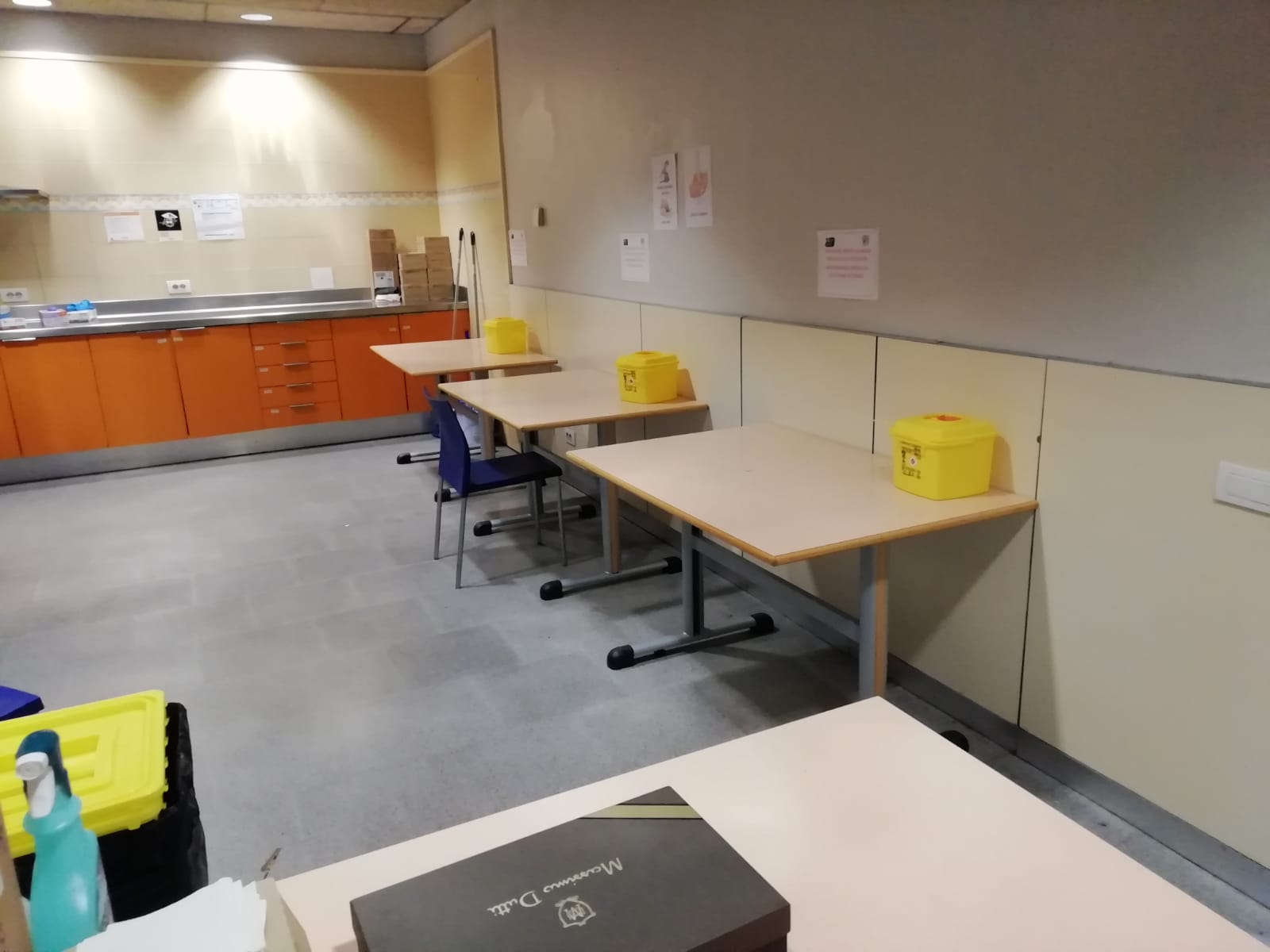
Other harm reduction services in Barcelona are increasingly distribute food and water besides injecting equipment, smoking paraphernalia, naloxone and condoms. Programs encourage clients to take more equipment and manage it for a longer time without physical contact with services. New cellphone recharging points were created to ensure that drug users are not cut off from their social network.
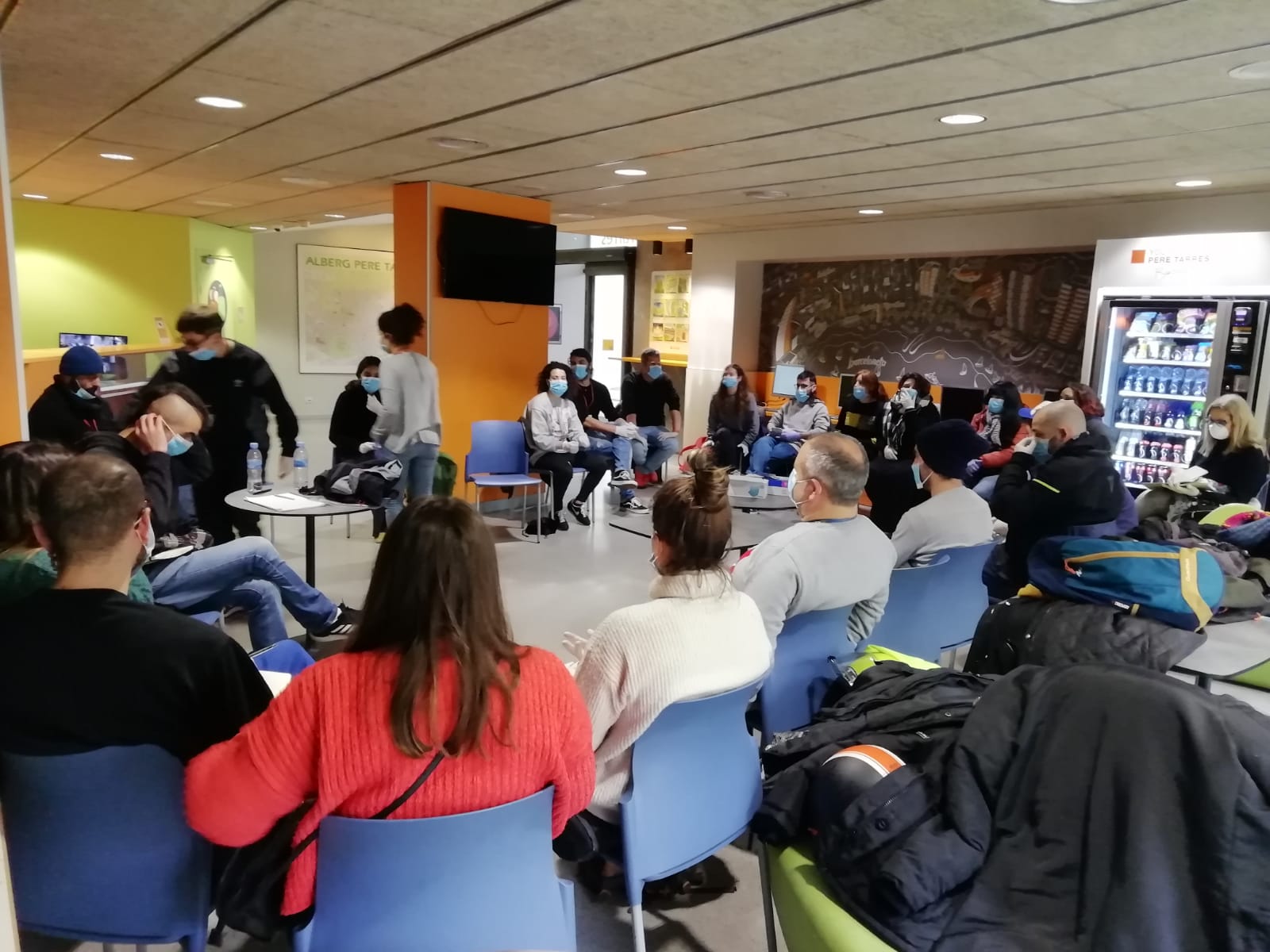
Meanwhile, the drug checking services and other activities of Energy Control are suspended temporarily but the team still works continously. “We closed the lab,” says Núria Calzada, “so we are trying to work in alternative ways, for example we do thin layer chromatography in our office, testing a few urgent samples (collected by the consumption rooms and Metzineres). We are requesting authorization to access the laboratory or, if that doesn’t work, transfer the High-Performance Liquid Chromatography (HPLC) to our office.”
A brief summary of the situation of drug services in the city
TREATMENT CENTERS
- Opening time shortened
- Interdisciplinary team continues to work
- Telephone consultation is being provided to all scheduled patients, with assessment of their clinical status, treatment evaluation and emotional support.
- There are no face-to-face consultations/therapeutic sessions, except emergencies.
- Group and family therapies, blood and urine tests have been suspended.
- Methadone is dispensed every day, except for Monday and Wednesday afternoons.
- Directly observed drug therapy is provided.
- Referral to/from other health services works, with prior information on those services (complete clinical report, with diagnostic axes and individualized therapeutic plan).
- Crisis interventions are provided if needed.
- General Health Support is available.
CONSUMPTION ROOMS
- Same service hours
- Interdisciplinary team continues to be maintained
- Identifying/prioritising clients at risk of being infected with COVID-19
- Isolation, assessment and hospital referral spaces if necessary
- Medical care
- Rooms in operation respecting distances
- Increased access to showers and hygienic tools
- More food to counteract fewer social kitchens
- Psychological and social care
HARM REDUCTION SHELTER
- 24 hours (30 women – 40 men)
- Isolated spaces
- Consumption rooms
- Harm reduction – treatment for alcoholism
- Health care
- Psychosocial support and activities
- Food and overnight stay
APRIL 3
BUDAPEST, Hungary
Réka Szabó, HepaGo
Due to the increase in the injecting use of new psychoactive stimulants and the limited access to sterile needles, there was a rapid growth of Hepatitis C infections among people who use drugs in Hungary between 2011 and 2014. After the closure of he major NSPs, thousands of people who live with HCV were left behind – with no access to HCV treatment. Réka Szabó’s new initiatie, HepaGo aims to bridge this gap and help these people to receive treatment, in co-operation with hepatologist doctors. Unfortunately the COVID-19 epidemic had a negative impact on this project as well. “We had to stop the admissions to treatment because our clients were sitting in overcrowded waiting rooms in the same hospital that treats COVID-patients,” says Ms. Szabó. “Now we try to navigate clients through telephone on how to manage their lives.”
The team of social workers, psychologists and hepatologists are coordinated online and receive online supervision. The newly established program helped several people to undergo treatment, 4 of them have already been cured, 10 people are being treated. The problem is with the 9 new people who were supposed to start treatment now – they could not do so because of the epidemic. “It is a big challenge to reach out and motivate clients with so low coverage of harm reduction programs,” she says. “After this madness is over I will try to make some fundraising.” After the epidemic, RRF and HepaGo will cooperate in producing a film about the program.
APRIL 2
TBILISI, Georgia
Kakha Kvashilava, Georgian Harm Reduction Network (via Beatrix Vas, CEU)
All of the harm reduction services keep operating but with new rules of delivering the services. Clinics are open and clinicians are available, working conditions are “business as usual”.
Georgian Harm Reduction Network uninterruptedly continues to provide quick blood tests for HIV, Hep C and Hep B. Moreover, they are giving away short stocks of clean needles, syringes, condoms and Naloxone, amount enough for a week.
Methadone substitution treatment operates on a regular basis. The Government has made an emergency decision to allow treatment providers to give people already prescribed the treatment 5-day stock of the substance at once. If the patient requests a supply for more days than that, clinics can decide on a case-by-case basis. Government communication around this has been unclear.
Non-governmental initiatives launched targeted campaigns such as the Mandala Harm Reduction youth project who started home-delivering drug testing kits for free.
BRATISLAVA, Slovakia
Dominik Jasekova, Odyseus
The closure of all shops including shopping centres have grave consequences on people who live on the street: they are left without access to running water. Access to food is scarce. It is mandatory to wear mask in Slovakia and some marginalised people who don’t have masks cannot even enter the stores. People who made their living from begging are now left without any income. Lack of food and water are the biggest problem so the harm reduction NGO Odyseus started to provide food on the street.
From this week on, the city of Bratislava started their own outreach program. They created a main point of distribution of masks and food to people who live on the street (drug users and non-users). Brochures with information about other services provided by NGOS are also distributed among clients. “We still work as before the crisis,” says Jasekova. “Our drop-in is open but with limited capacity and safety measures.”
APRIL 1
COPENHAGEN, Denmark
Nanna Gotfredsen, Danish Street Lawyers
Street corona-testing started this weekend in the two largest cities, Copenhagen and Aarhus, run by the regional hospitals. So far two persons (both are homeless migrant people from Copenhagen) found to be positive for COVID-19. Many others tested negative.
This morning we secured private funding for the Users’ Academy project of the drug users’ union, using their HepC-testing bus to test people for COVID-19. Many people who use drugs trust this user union a lot more than the public health system. They are concerned that testing positive for COVID-19 carries the risk of a forced quarantine. The Minister of Health and the Minister of Social Affairs finally sent a letter yesterday to all municipalities reminding them that withdrawal treatment, OST and other harm reduction services are “critical interventions”, even during quarantine. “I’m still not confident if this will happen in practice,” says Nanna Gotfredsen. “The COVID-19-guidelines from the health board is really bad (it recommends to prescribe buprenorphine, which doesn’t work for most users here.” (Source of picture)
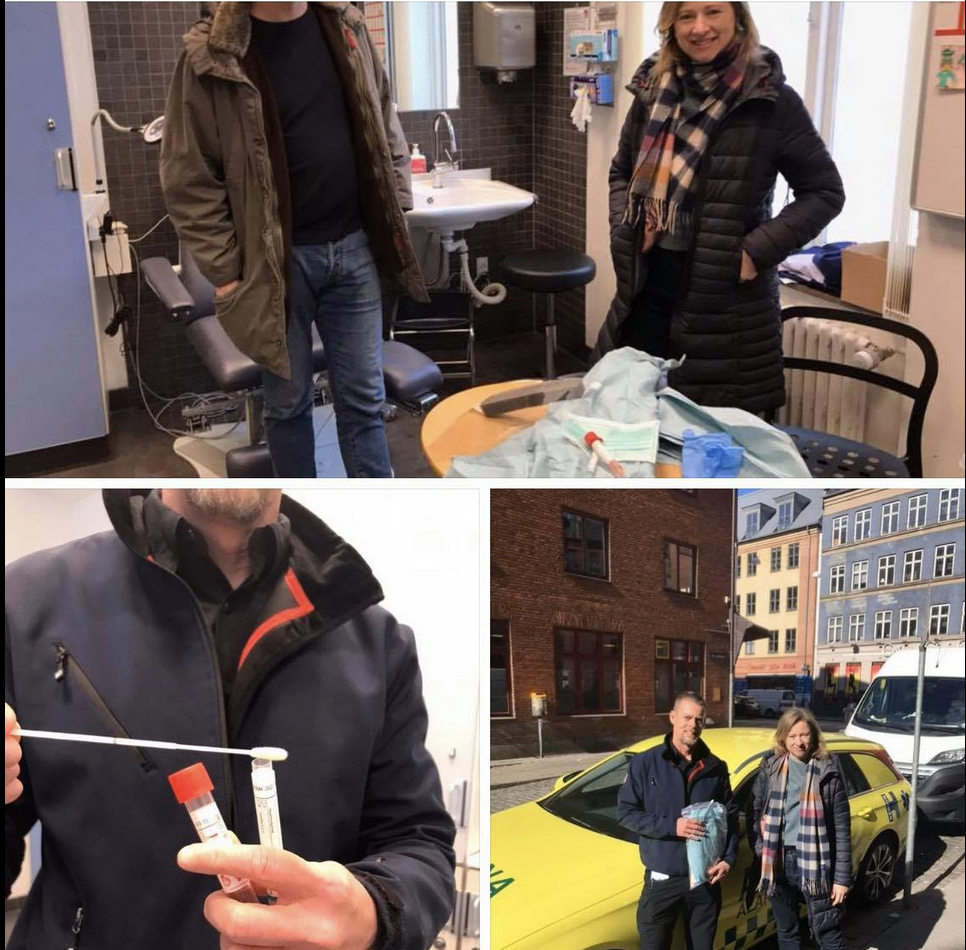
MARCH 31
SKOPJE, North Macedonia
Bogdan Kolev, HOPS
After the outbreak of the coronavirus pandemic, harm reduction services of HOPS- Healthy Options Project Skopje were modified but all clients are still covered. Drop-in centers are closed, but each service has a separate telephone number and contact person that responds to the client needs (Social service +38975437090, Legal service +38975423316, Medical service and exchange sterile injection kit +38975769948.)
Clients can also contact the services through all social media platforms (Facebook, Twitter, Instagram, website) where all updates related to COVID 19 virus prevention are published from the government of North Macedonia and from the WHO. Mobile outreach teams operate every day, where previously contacted clients are visited in front of their homes. Depending on the needs of the clients, the team consists of an outreach worker and a social worker, an outreach worker and a doctor, or an outreach worker and a lawyer. There are maximum two people included in one team, since we’re following government recommendations (two people per vehicle). Outreach teams each day distribute sterile equipment (needles, syringes, distilled water, condoms, lubricants), food and hygiene kits to the most vulnerable (HOPS collaborates with other charities, plans humanitarian action to collect food and hygiene kits). Our outreach teams provide information related to the coronavirus to their clients and how to protect their health (such as recommendations from INPUD). Once a week a medical person (doctor) must be part of the outreach team to assess the general health of the population and to respond promptly if necessary.
Opiate Substitution Therapy centers are open and clients receive their medicine regularly. The staff at the methadone centers have increased the degree of caution and prevented more patients (therapy being raised one at a time) and fully followed the recommendations for protective equipment by the government of North Macedonia and WHO.
“So far our team has been working bravely, unhindered, and dedicated to all those in need. We thank them for their empathy and sacrifice in these strange times, says Bogdan Kolev from HOPS Skopje.
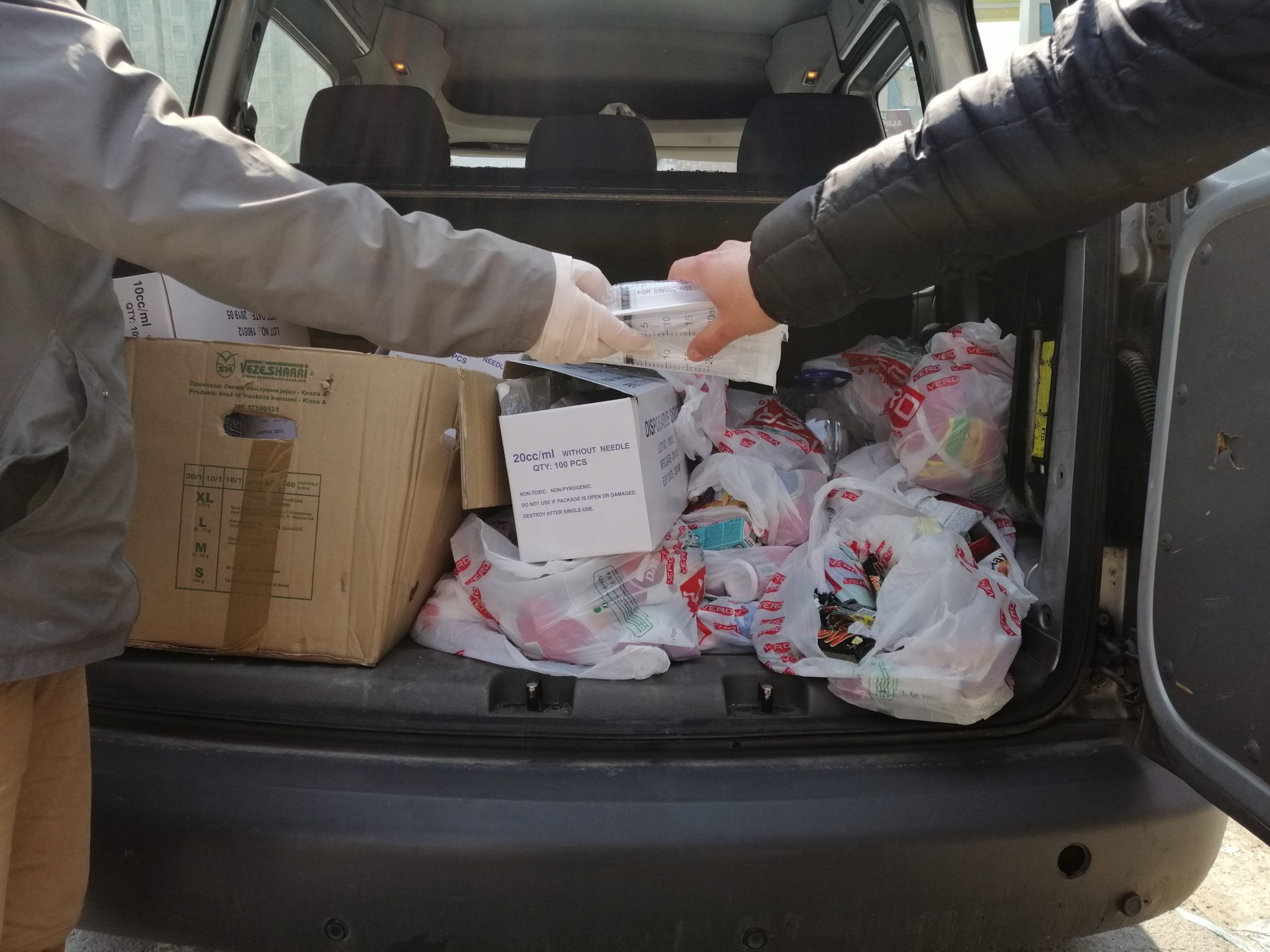
ZURICH, Switzerland
Larissa Maier, UCSF
Three supervised injection site closed down in Zurich on March 18, because physical distancing was not possible. On March 19, an outdoor emergency facility was opened to continue the service. The transition was successful, most people who inject drugs have access to live-saving services.
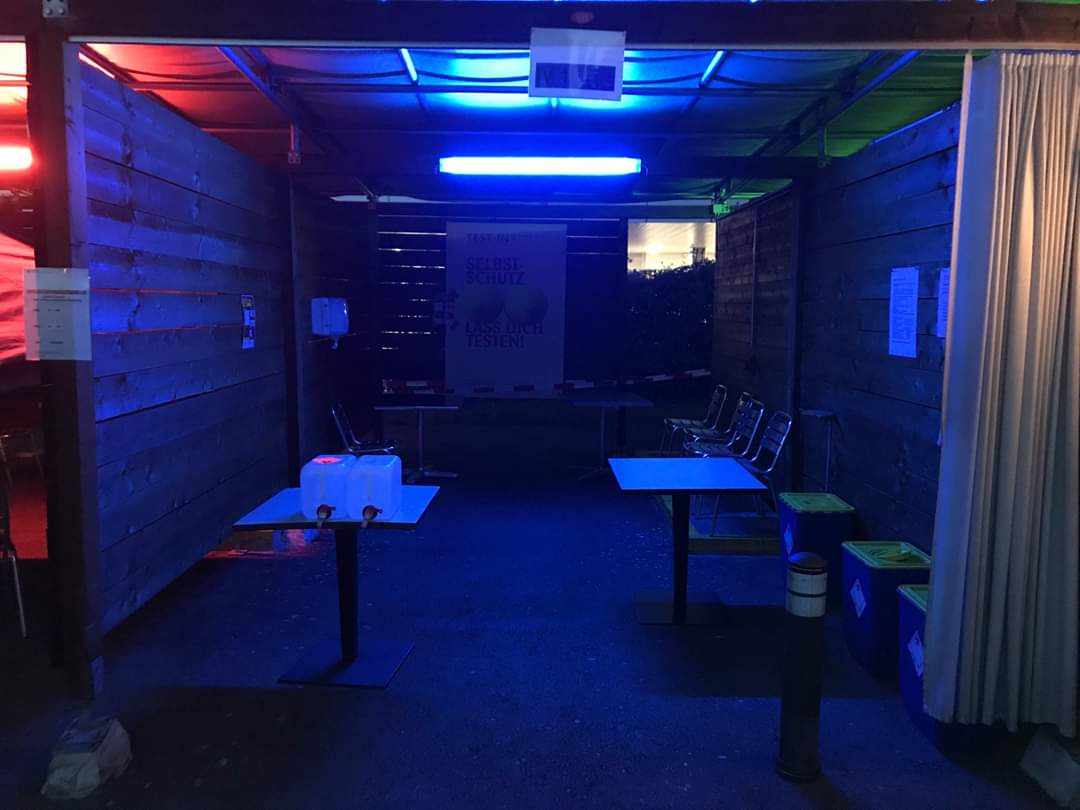
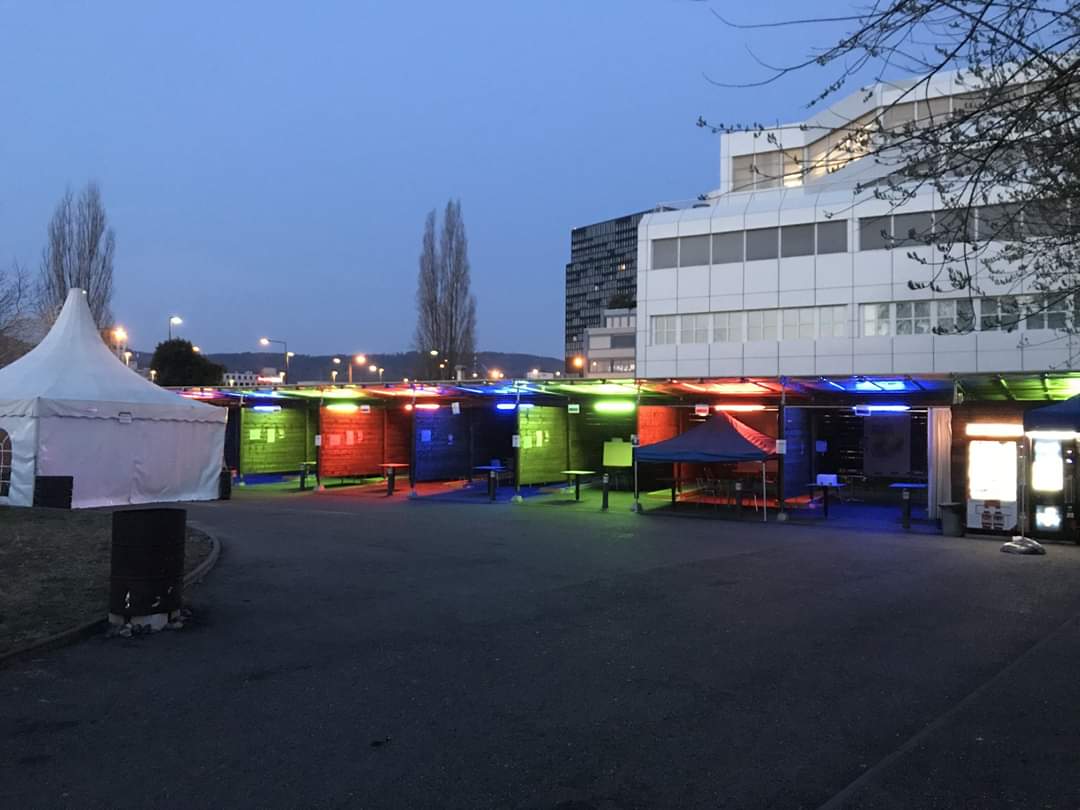
MARCH 30
AMSTERDAM, The Netherlands
Katrin Schiffer, Regenboog Foundation
Stichting De Regenboog Groep in Amsterdam facilitates extra shelter for homeless people in Amsterdam in the fight against Covid-19
The municipality of Amsterdam will open 273 shelters for homeless people in the city in the coming days to prevent them from becoming a source of contamination for Covid-19.
Additional 100 night shelter places will be made available in a sports hall in Amsterdam West Stichting de Regenboog Groep will provide the nightshelter services with professionals and volunteers.
Another 173 existing reception places, including 23 places for families, will be created on different locations in the city to minimize the risk of contamination with the coronavirus. These places will be made available in different hostels in the city.
At present, Amsterdam has more than 6,000 shelter places for the homeless during 365 days a year and 445 temporary places in the specific facilities during the winter time.
Although the city council calls for 24-hour shelter, this is not advised by the Municipal Health Service. ” If you put large groups of people together all day, the chance of contamination is greater than being outside or at a walk-in facility. , says the local councilor for social affairs in Amsterdam.
MARCH 28
PRAGUE, Czech Republic
David Pesek, Sananim
The global pandemic of COVID 19 affects all aspects of people’s lives and it has a very strong impact on those most at risk, namely people who use drugs. There are much less opportunities for the most vulnerable regarding how to make a living. As Prague is very touristic place, the most vulnerable people used to beg for money from tourists. There are no tourists now. Everywhere are tough restrictions. People have less money, but the substances are getting more expensive and shorages start to develop in the market. “We are expecting less precursors to make crystal meth (famous pervitin in Czech Republic) and are afraid of the return of dangerous new psychoactive substances,” says David Pesek.
Clients of OST programs are facing a difficult challenge: how to economise on prescription medication, taken home in bigger amount than before the crisis. “The government has a strict message: ‘Stay at home with your close relatives!’,” says Pesek. “But how hard it is to comply for people who have no home, and often not even close relatives?” There is a crisis plan to create outdoor shelters where homeless people can camp in tents, with access to some hygienic and other facilities. But the situation of homeless people is alarming.
Drug services that are often the only facilities available for these people had to introduce some safety measures. These restrictions also apply at the Harm Reduction facility, the drop-in centre of SANANIM, where they implemented a set of measures to response to the current situation. They discontinued the provision of all interventions that would involve group meetings. They switched to phone or online counseling and therapy with clients . They had to suspend testing for infectious diseases. “This is really disturbing,” says Pesek. “Lets hope we can restart testing soon again!” They had to adjust the needle and syringe program to the situation and give away more harm reduction material. In addition to sterile needles and syringes, they distribute tissues, respirators, more food, fliers with information about the pandemic and preventing infections etc.
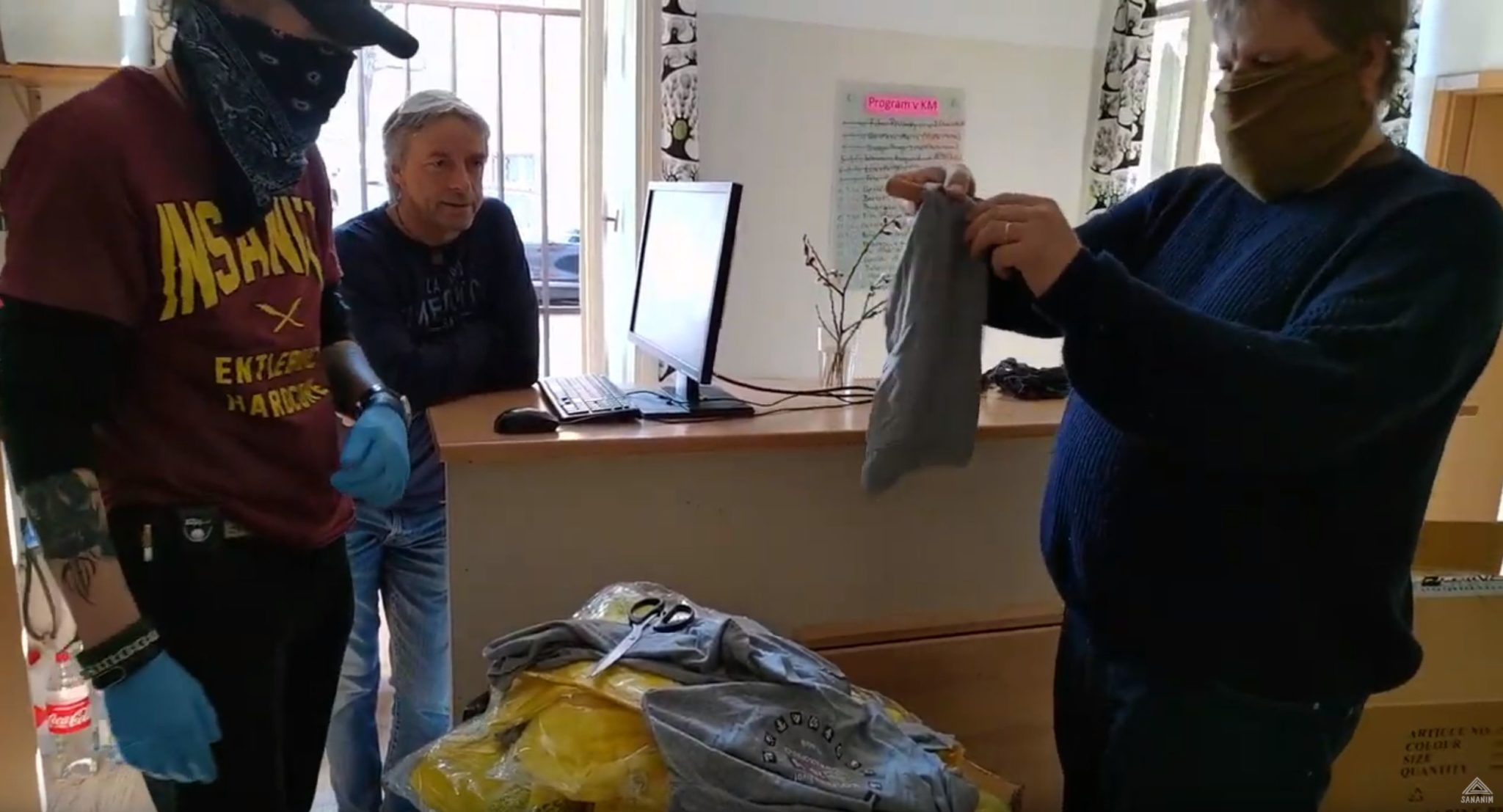
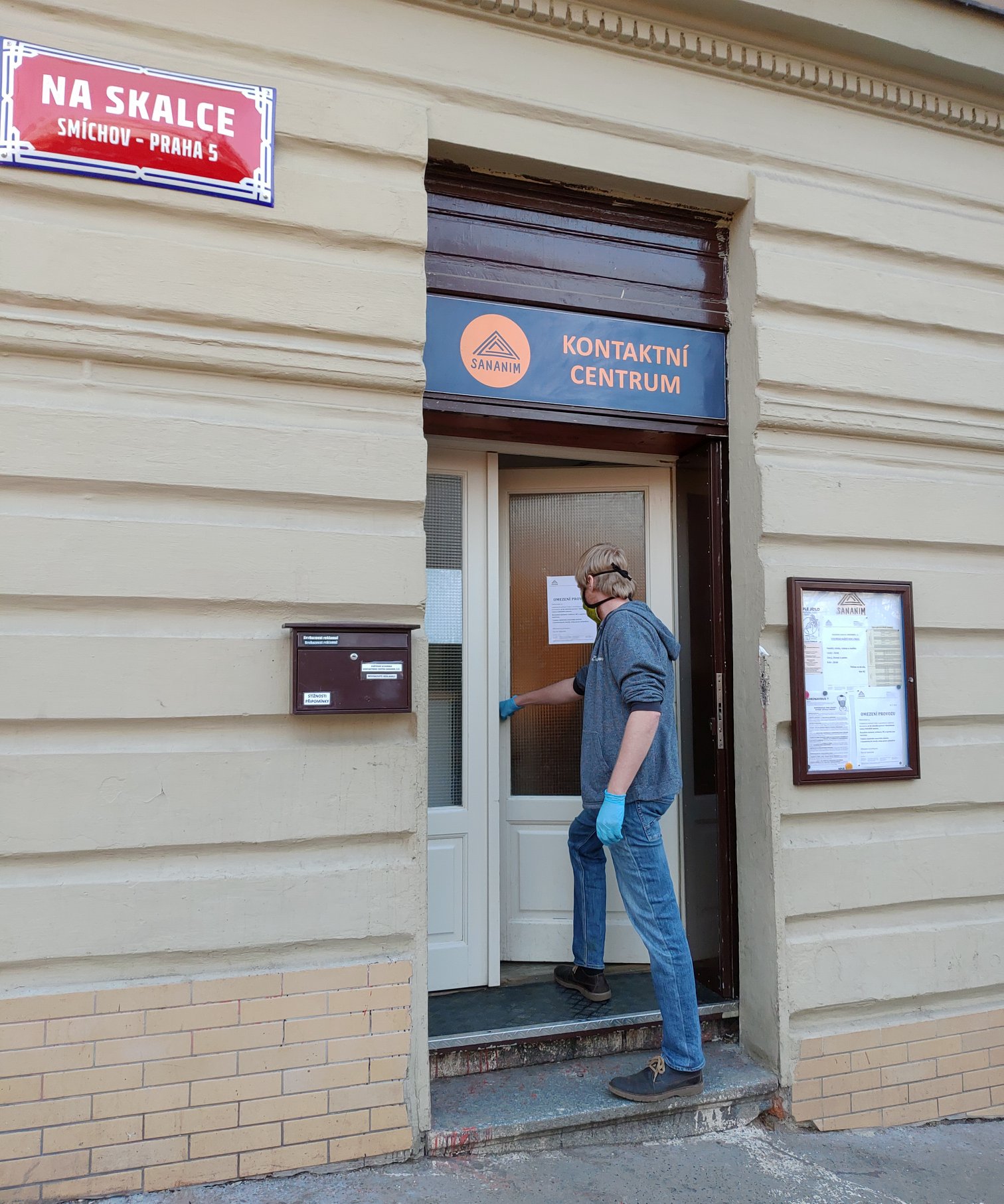
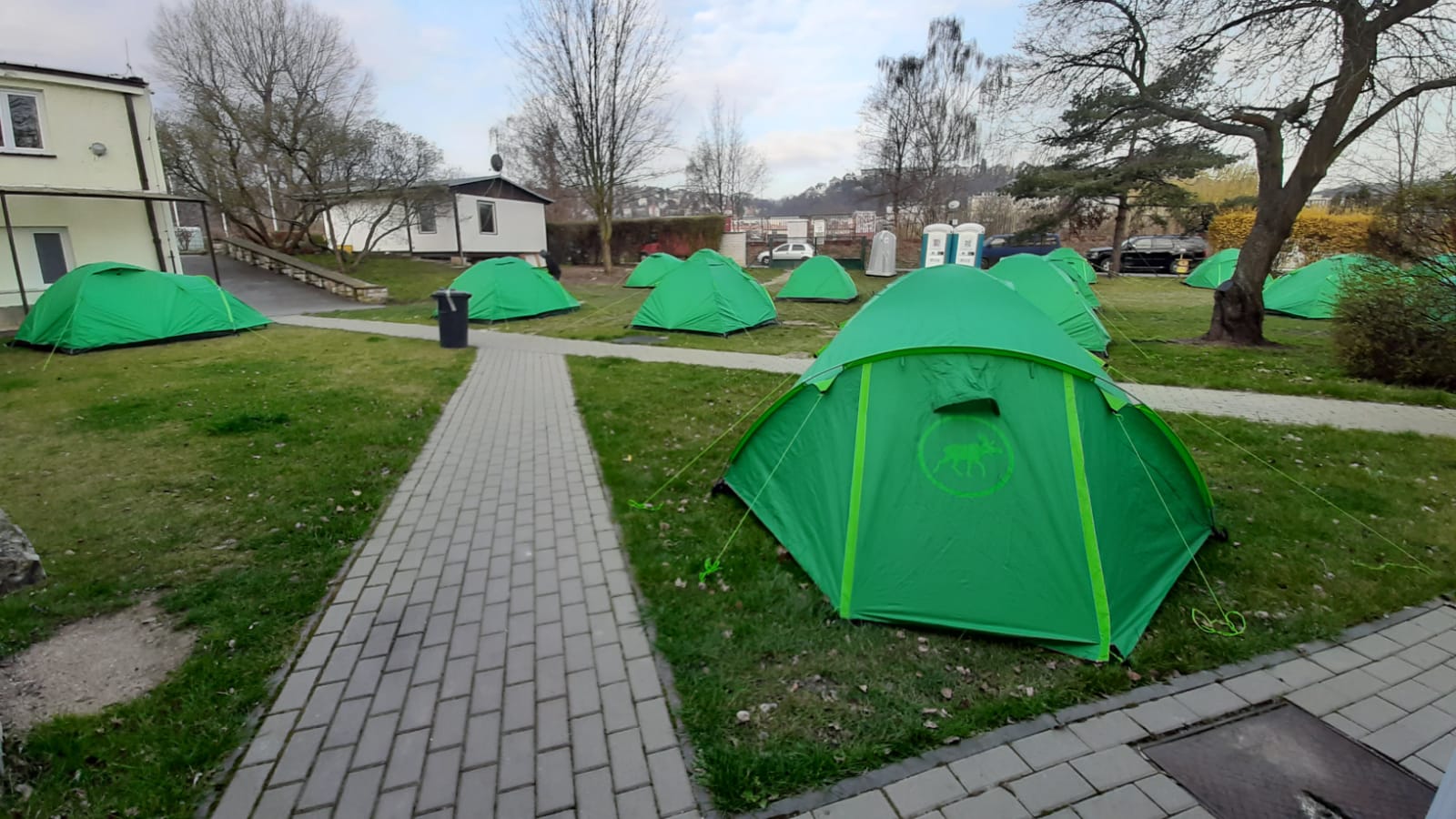
AMSTERDAM, The Netherlands
Katrin Schiffer, Regenboog Foundation
The situation is critical with regard to homeless people. Some day shelters were closed down, because they were too crowded and the city of Amsterdam tries to divide and send people to different smaller shelters. The Regenboog Foundation opened a shelter in Amsterdam for homeless people with approximately 40 beds. Some cities have created specific shelters for homeless people who are infected with COVID-19. Some cities offer places in empty hotels to prevent people from staying on the street. The overall situation is worrying,” says Ms. Schiffer. “It is difficult to find buildings to use them as shelters because of the bad real estate market.”
BARCELONA, Spain
Núria Calzada, Energy Control
The main problem is how to help homeless people who use drugs, who cannot isolate and have specific needs at shelters. Service providers now working on creating specific safe places/emergency shelters for homeless people who use drugs.
MARCH 27
PODGORICA, Montenegro
Marija Mijovic, Juventas
The government has introduced new measures, for example a ban on leaving the city of residence, with the exception of work-related trips with a special employer certificate. The opening hours of shops have been shortened. Juventas is still providing services for people who use drugs, sex workers and former prisoners:
1. Distribution and exchange sterile injecting equipment (needles, syringes, cookers, alcohol, tourniquets, distilled water) every day except weekend from 17h to 21h, and outreach once a week from 20 to 22h. We are now doing outreach just in Podgorica, and in this week we have distributed bigger amount of equipment to our clients outside Podgorica , due to the new measures- ban of traffic between cities. We will distribute more, if needed.
2. Distribution of condoms and lubricants, in above mentioned working hours.
3. Washing and drying clothes service, every working day from 17h to 21h.
4. Online consultations and consultations over the phone, with our peer workers, social workers, doctor and psychologist.
5. Lunch packages with essential groceries, once a week.
MARCH 26
ATHENS, Greece
Marianela Kloka, Praksis
Opiate Substitution Treatment
OKANA is the only public organization that provides OST. As we are told by them, due to the pandemic, they provide take home medications (1 or 2 weeks for buprenorphine and 1 week for methadone), except those clients who have already been prescribed medication for a longer period of take home. Extra measures are already taken to provide substitutes in case all OKANA staff gets sick. The daily turnout of clients is about 20-25% of the pre-epidemic level. They can enter the OST clinics one by one or in small groups. Hygienic equipment is available and has been already distributed, the organization has asked the Ministry of Health for more supplies. For the time being, zero infections have been reported from clinics. There is a stable distribution point in the center of Athens that provides materials for safer use from 10:00-14:00 through a special construction that allows no physical contact. They try to do the same in Thessaloniki (second bigger city in Greece).
Homeless people
With regard homeless people it is important to underline that Greece has few if no shelters accepting homeless people who use drugs daily. We are informed that different organizations (including OKANA) work with the Municipality of Athens and the Municipality of Thessaloniki in order to provide shelters for active drug users who are homeless. If this plan works, OKANA plans to provide OST directly there to all those in need.
Outreach
Doctors of the World are working with homeless people in general, distributing kits with soap, antiseptic gel, masks and gloves. They have active hotline for information and they distribute a 2-pager leaflet with information for COVID-19 in Greek. They underline that homeless people almost disappeared after EODY issued lockdown and banned the soup kitchens. The NGO PRAKSIS is doing outreach work in Athens on a daily basis, using street workers, providing material for safer use (syringes, cookers, etc.), gloves, masks, antiseptic wipes and information leaflets in 5 languages. STEPS do outreach work daily in Athens, using the mobile unit and distributes leaflets with information about COVID-19 in 5 languages, soap, gloves, syringes, cookers, gauze, antiseptic wipes, antiseptic gel, food, water, sleeping bags and blankets. They underline that street work is very difficult because people who use drugs are under constant persecution by the state.
Community of People Who Use Drugs
The network of people who use psychoactive substances (PENUPS) provides all information published by International and European bodies through their online community, parts of which are translated to Greek. They are in a process of publishing leaflets in Greek for their peers.
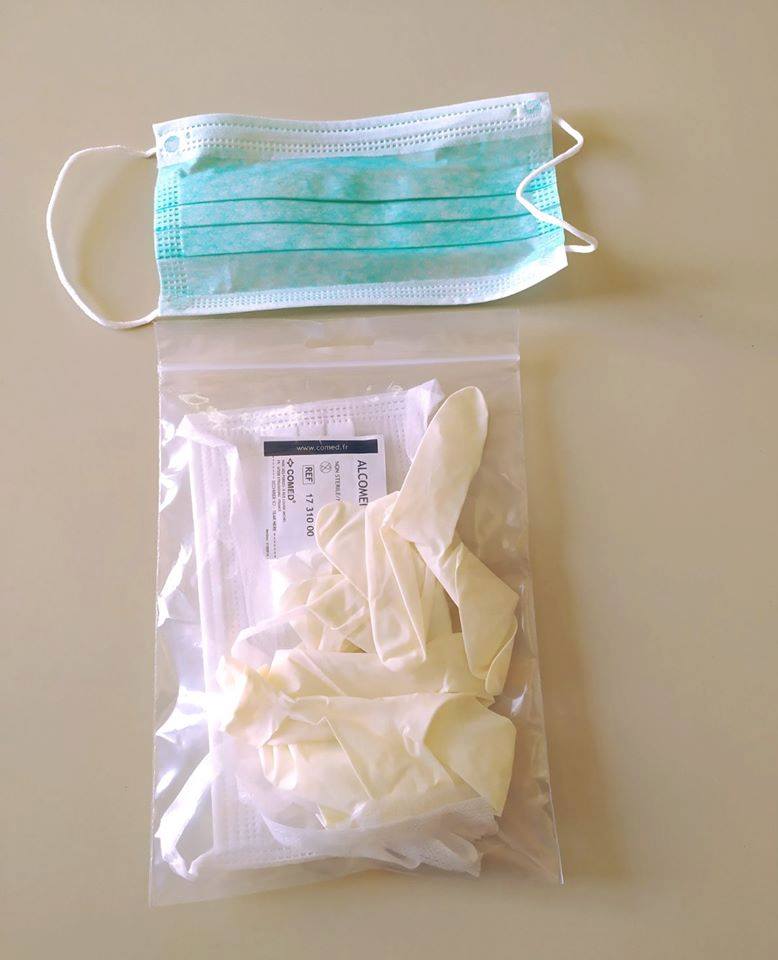
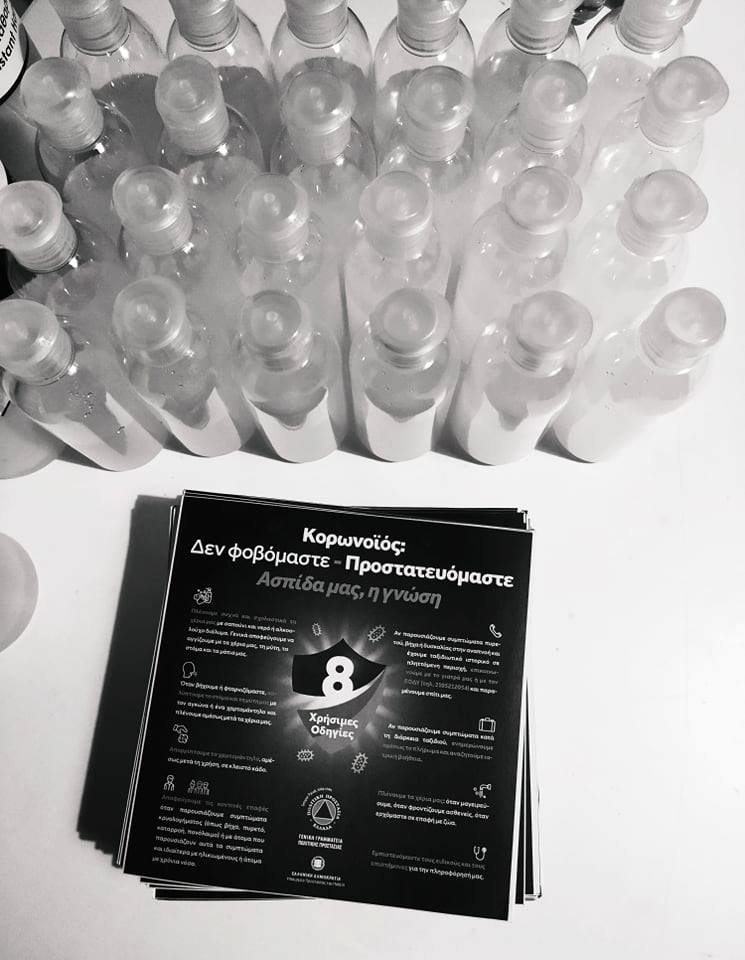
HELSINKI, Finland
Mika Mikkonen
4 outreach groups are working on the streets, handing out sterile injecting equipment, condoms and survival packages with food, water, hygienic tools etc. Professionals are concerned about the possibility that a shortage in food and medicines can occur due to restrictions on transportation and the closure of several food charities and shelters. A shelter for women was closed but clients can come and take food and other basic support tools to survive on the streets.
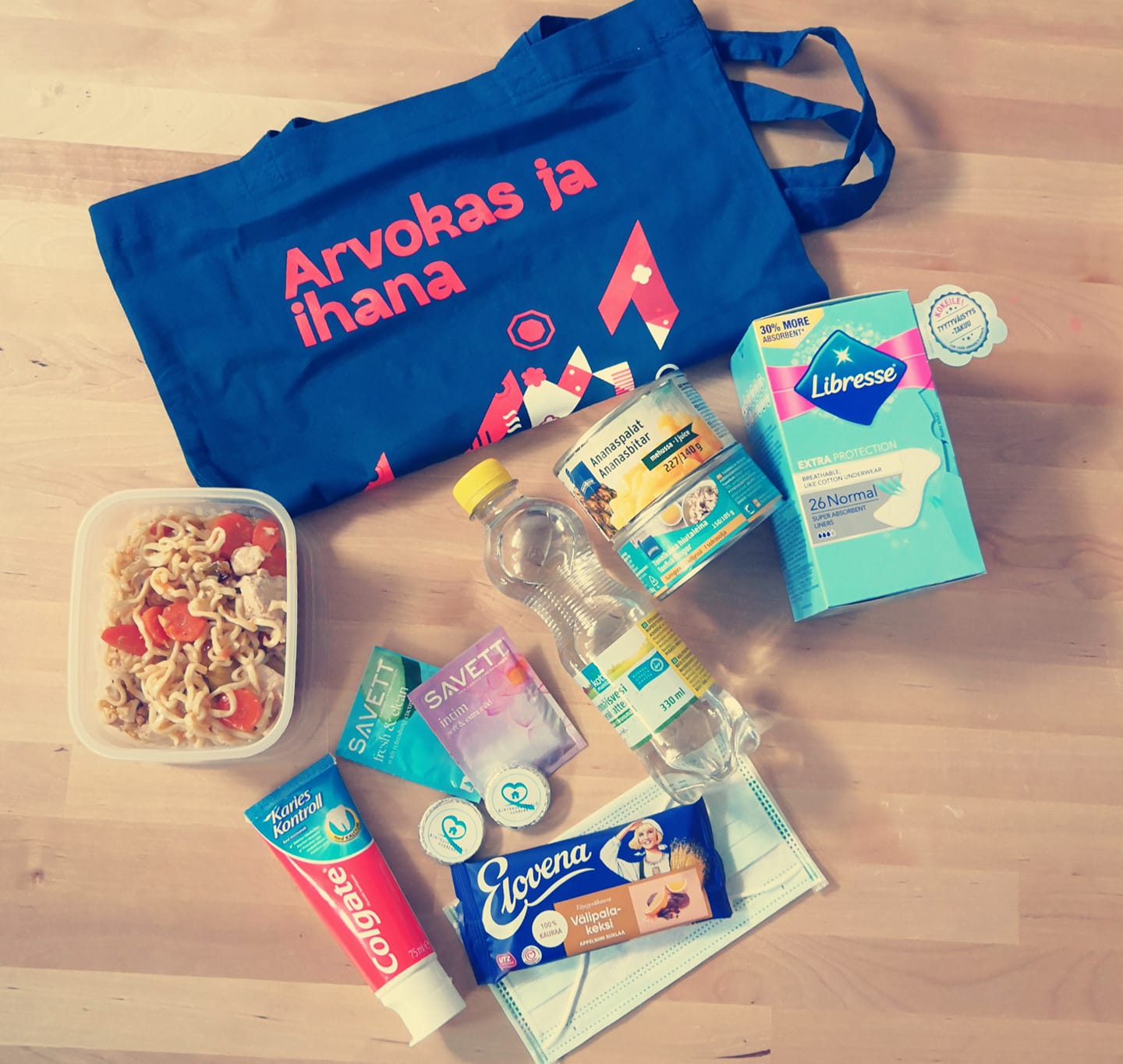
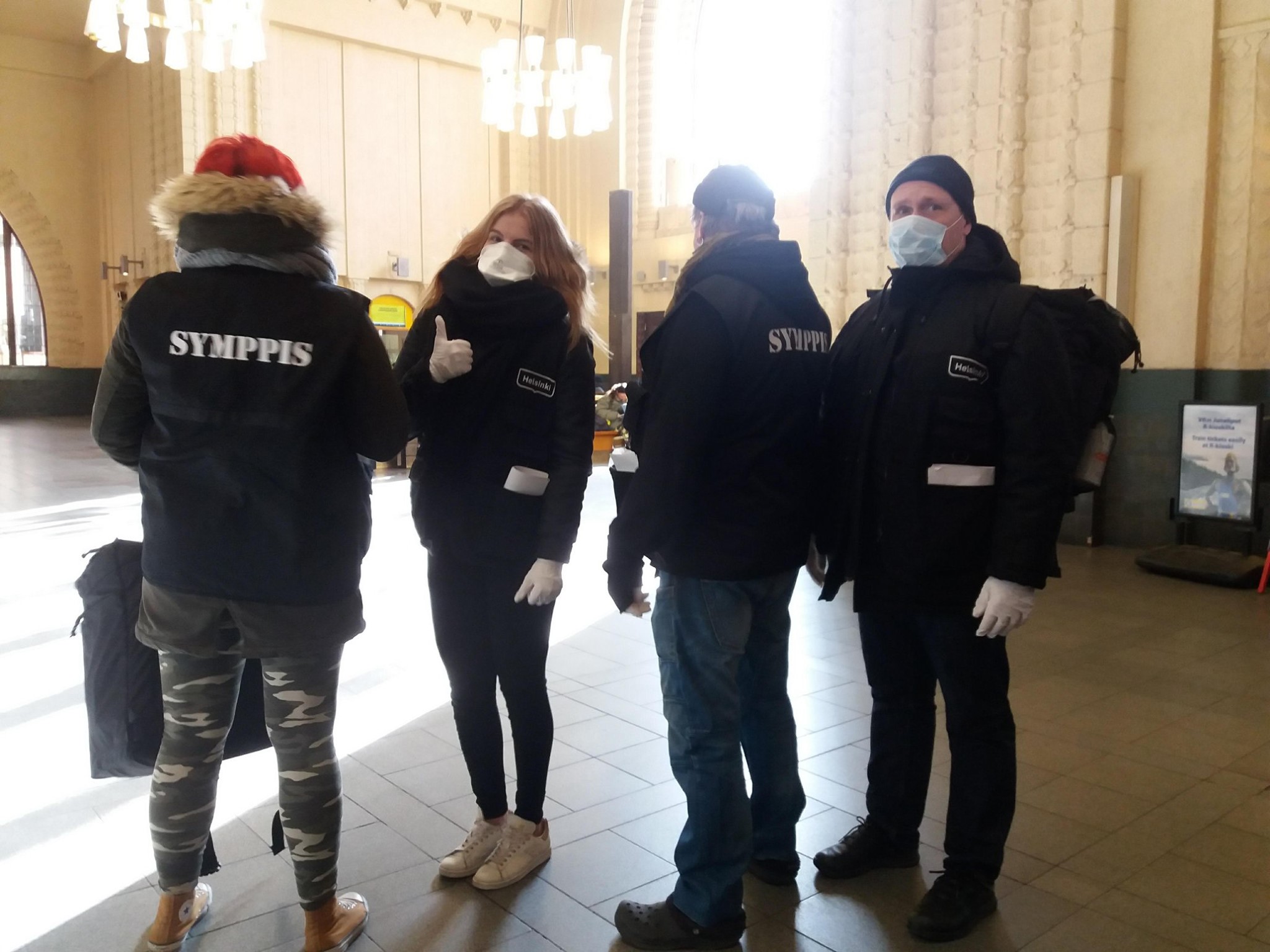
BUCHAREST, Romania
Marian Ursan, Carousel
Carousel continues its mobile outreach program and it seems people need support now more than ever. In addition to the usual materials they distribute, they included additional packages with food and disinfectants. They offer information about COVID-19, about the importance hygiene and guidance about how to fill out official papers. They orient people to shelters and even take them when necessary. Last night Carousel started the field activity much earlier, it has been obvious to them since last week that they will have a lot of work to do. Even so, it was almost morning until the team could get home. “I won’t tell you what is happening on the streets, or how much police and army I’ve met, not even how scared everybody is,” says Marian Ursan from Carousel. “What I can say is that the reality I saw, as I experienced it, is completely different from what’s on TV. There are still people left behind, completely vulnerable. And COVID-19 is only in the end of the list of threats.”
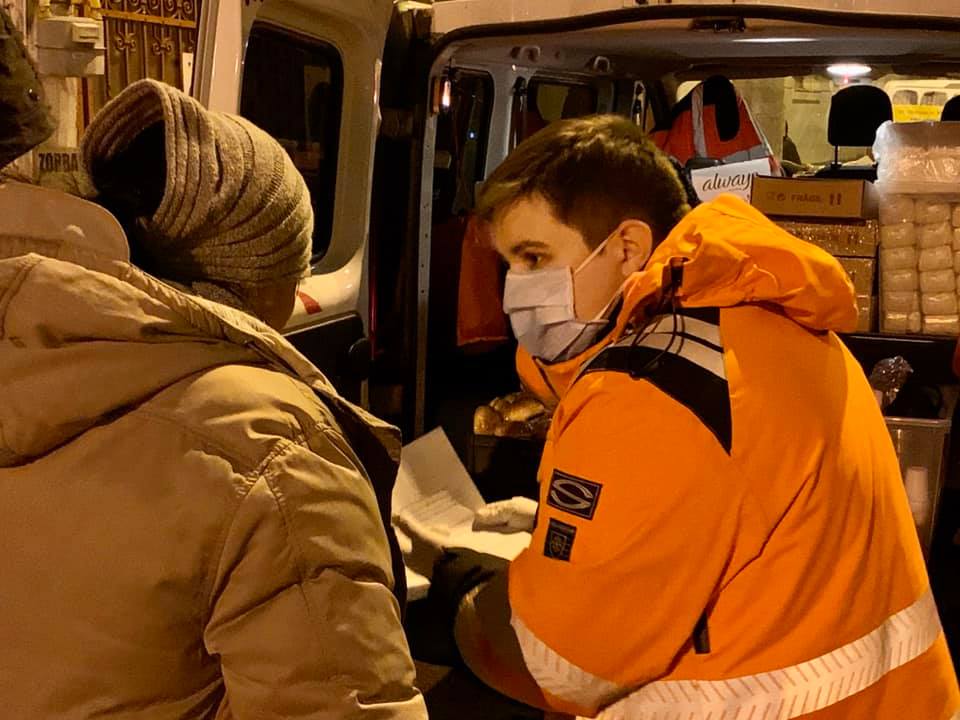
MARCH 25
LJUBLJANA, Slovenia
Borut Brah, Stigma
Since the beginning of the COVID-19 epidemic hit Slovenia, all drop-in centres are closed (by the decision of the Ministry of Labour, Family and Social Affairs). In Ljubljana the Association for Harm Reduction Stigma continues to distribute sterile injecting equipment. Mobile outreach work (van) continues to operate in cities in the central part of Slovenia. IDUs have access to sterile injecting equipment but security measures are introduced: clients and staff has to keep 1.5 m distance from each other. All other information and counseling services are available via telephone or online. The greatest challenge is to support homeless people because they have nowhere to go (all daily care programs are closed, as well as public toilettes, due to safety reasons). There are ongoing negotations with local authorities and ministries on how to deal with this situation.
Night shelters and safe houses for women are still open. However, it is very problematic that staff and clients have no access safety masks. The use disinfectants is mandatory.
OST is working, users get their take home medicine for a week. Some even for two weeks. One of the problems is closure of public transportation, which means that some persons cannot reach the OST clinics. For some of them, Association for harm reduction Stigma can deliver their methadone.
Drug testing, performed by Association Drogart, is open, but in smaller scale as before and with more safety measures.
MARCH 24
BUDAPEST, Hungary
Peter Sarosi, RRF
A new website was created as a civil society initiative that lists all online and offline services available for people who use drugs in Hungary. The Ministry changed the rules of the mandatory treatment programs that serve as an alternative of criminalisation for those offenders who were arrested because of drug possession for personal use. People are not required to show up in person at the treatment sites and they can continue consultations online. OST programs are open but try to supply patients with prescriptions through phone/email to reduce physical contacts.
MARCH 21
PARIS, France
Marie Debrus, Médecins du Monde France
After service providers met with the representatives of the Ministry of Health and the national drug agency, a new decree was issued about OST programs. According to this decree, clients can take home their medications for one month. It also made it easier to renew the prescriptions. To minimise the number of visits, doctors can send the prescription by fax to the pharmacists.
MARCH 20
TALLIN, Estonia
Mart Kalvet, Lunest
All substitution treatment providers continue providing services, but at some facilities the opening hours have been reduced. Patients can receive their medicine for longer periods of time, and are encouraged to agree on specific fixed times for visiting the centers in order to reduce the number of possible contacts. Substitution treatment centers that previously had very strict rules about issuing take-home methadone have changed their rules; people get their medicine for longer periods of time (3–5 days), and are able to purchase their prescription medicines for up to two months in advance. NSPs are open; mobile exchange services are also operational (with shortened opening hours). Larger than usual quantities of injecting equipment is given out; previous restrictions to amounts of syringes etc. do not currently apply. The work of day centers (drop-in centers) has been curtailed — measures for diminishing the spread of COVID-19 have been implemented, and most consultations are carried out online or by phone. These rules are set in place because clients include people with chronic diseases who are therefore in a risk group. The National Institute of Health Development is trying to be as flexible as possible, operating under the assumption that all services must remain available. Only a few HIV testing service providers have closed down because all of the resources of the hospitals in which they operate have been directed towards testing for COVID-19. In such cases, the Institute will see to it that at least one HIV testing facility per region (county) remains open and is able to provide testing services. Harm reduction services are facing the same problems as the rest of the country with regards to personal protection equipment. There are widespread issues with procuring face masks (but not gloves or disinfectants); where possible, face masks are issued to workers. Currently, no face masks are distributed to people who do not display COVID-19 symptoms. Providing face masks to health care workers and service providers is considered a priority.
BARCELONA, Spain
Núra Calzada, Energy Control
Metzineres, an organisation of women who use drugs, published a booklet with useful harm reduction information, available on instragram – click on the picture below to read it! You can download PDFs here: Part-1 and Part-2.
Energy Control published a leaflet for prevention measures in the ChemSex community during the Covid-19 epidemic, available here.
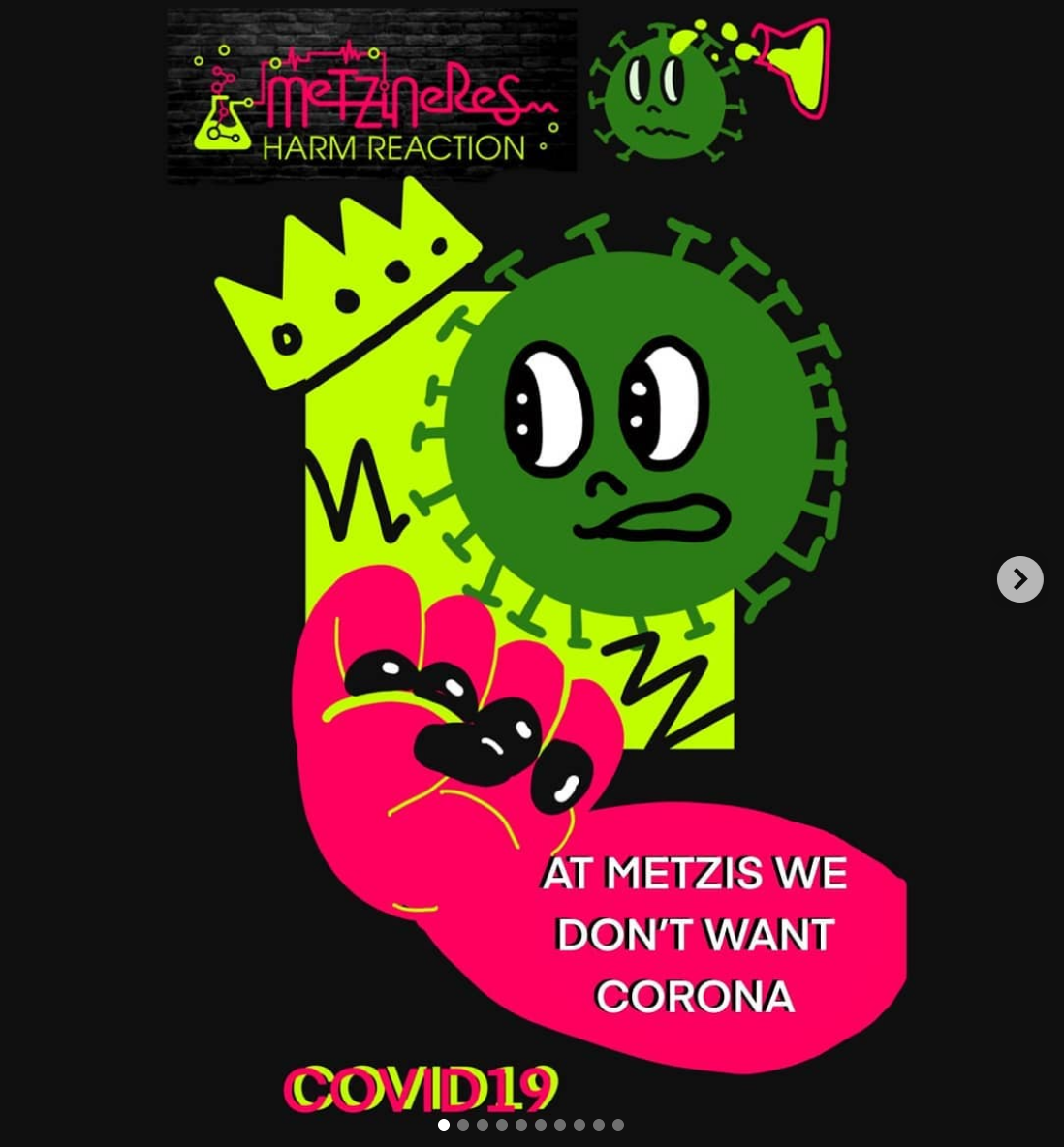
LISBON, Portugal
Adriana Curado, GATS
The mobile drug consumption room in Lisbon continues its work, with reduced working hours and staff. They allow one client at a time inside the van, and the team wears protective equipment (mask, gloves and gown). They also maintain nursing care and social support for urgent situations. Distribution of injecting and smoking materials is also ensured.
MARCH 19
PODGORICA, Montenegro
Marija Mijovic, Juventas
There is limited access to masks, they are only available in some pharmacies. Juventas prepared bottles with alcohol disinfectants for their clients because their transport got stuck at the Serbian border and they do not have information about when it will be released. Coffee shops, reastaurants all closed, people are asked to stay at home as much as possible, just to go out to buy food and medicines. Taxi services stopped, as well as domestic and interanational train and bus lines.
PRAGUE, Czech Republic
Jiri Richter, SANANIM
“Eureka, I shouted and tears of happiness and relief were flocking down my face. Finally we got masks for us and clients! But tears of happiness will soon turn into tears of despair. There were only 100 of them!!! They are disposable and they are useless for protection from infections! There are about 200 people working in all SANANIM services and there are over 2.500 clients in direct contact with pensioners who are the most fearless population. So we continue to produce the textile masks for ourselves and our clients (like in most countries).” (Jiry Richter, SANANIM)
LISBON, Portugal
Marta Borges, ISS created flyers with Covid-19 information in Portuguese language.
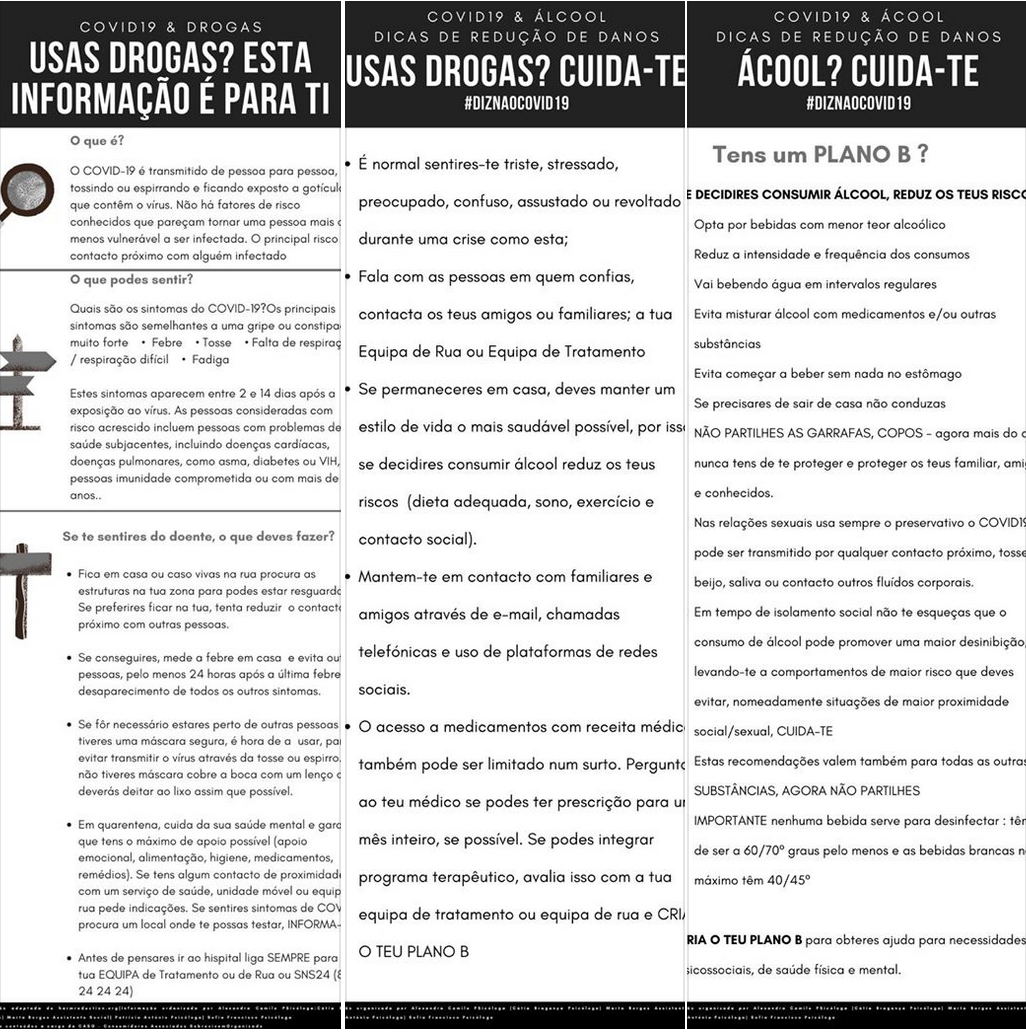
COPENHAGEN, Denmark
Nanna W. Gotfredsen, Street Lawyers
Critical interventions are open, that is, DCRs and OSTs. Take home medication is given for a longer period (generally 2 weeks) in some municipalities but not everywhere. Advocates are still pushing for this (as they push for having outreach doctors offering treatment for withdrawals and OST to the majority of users who are not connected with the treatment system). Service providers are still waiting for announcements from the national health board regarding the acceptance of take-home OST for longer periods. Major NSPs are still open (but no information about smaller cities where NSPs are often connected with drop-in centers, of which some are closed). The main shelters are open but with safety measures. Some smaller night shelters are closed but emergency-night shelters are being opened and specific quarantine-shelters are set up for homeless people too, at least in Copenhagen. Many smaller drop-in centers that provide food for homeless people are closed now. Alchemist (famous restaurant recently given 2 Michelin stars, now closed) offered to hand out food for street people through services for the homeless. Service providers are planning to set up a bus that was used to screen street people for TB to test clients for Covid-19. They are also working on creating a street-based/outreach service for people struggling with withdrawals. Services hand out crackpipes (“TAKE CARE – DONT SHARE”), and pink cards explaining that people have the right to treatment in case of withdrawals and a black card with Covid-19 safety information.
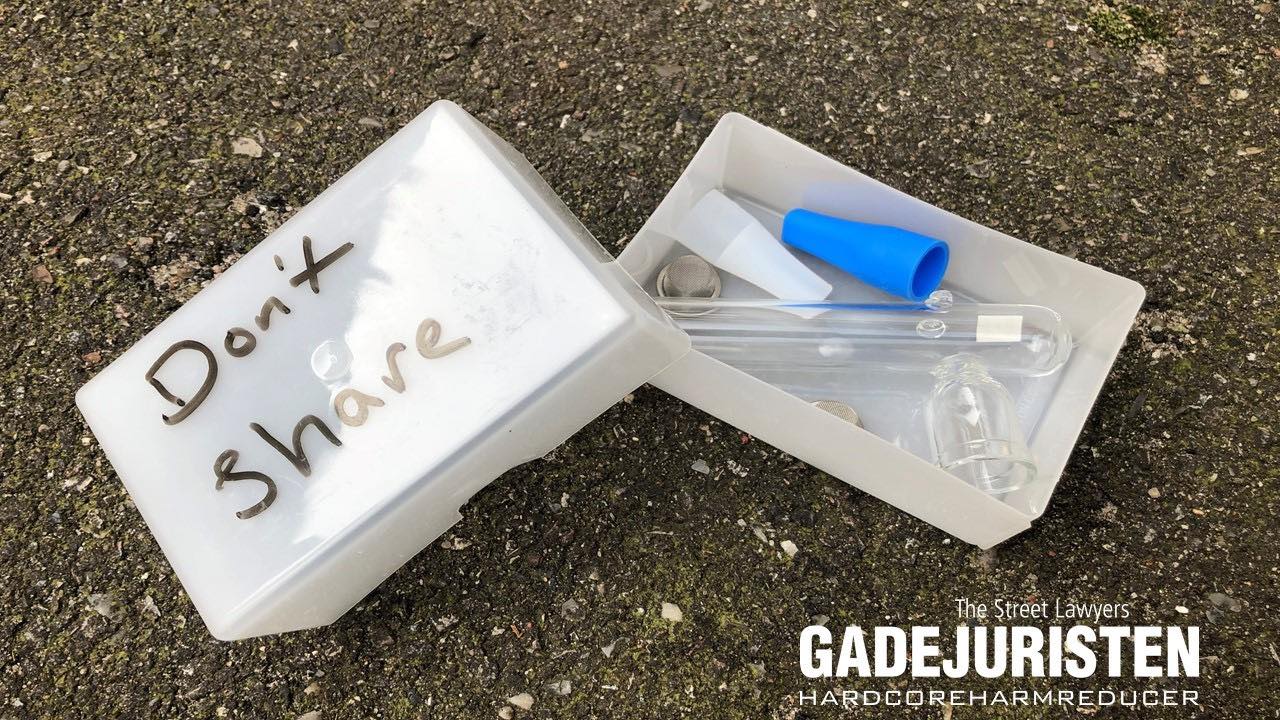
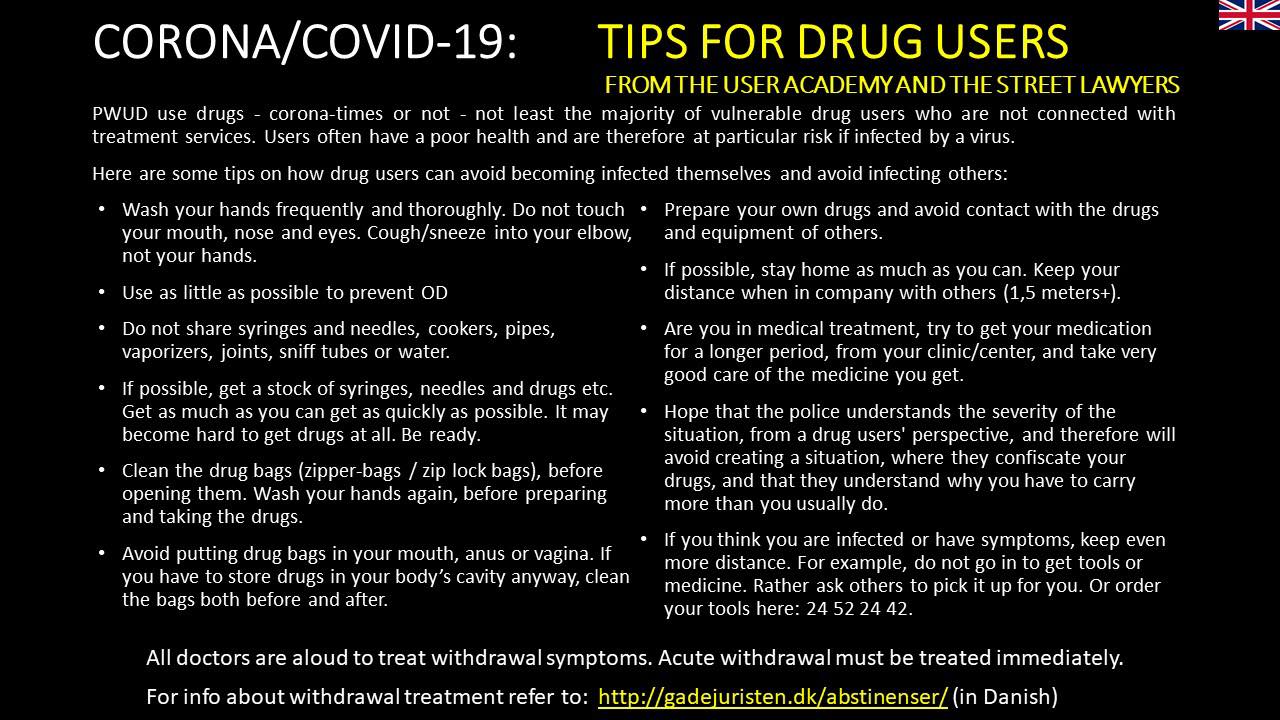
AMSTERDAM, Netherlands
Rafaela De Quadros Rigoni, Mainline
After people lined up in front of the coffe shops authorities allowed them to stay open. Shelters remain open across the country. Many municipalities choose to temporarily close their walk-in center so that homeless people can stay during the day. In Utrecht, a municipal building is available for homeless people who are infected with the coronavirus, where shelter and care can be arranged if necessary. Not all cities are that far yet. (According to Volkskrant)
BARCELONA, Spain
Núra Calzada, Energy Control
Energy Control published a new flyer and video, you can find them among the resources – or click on the picture below!
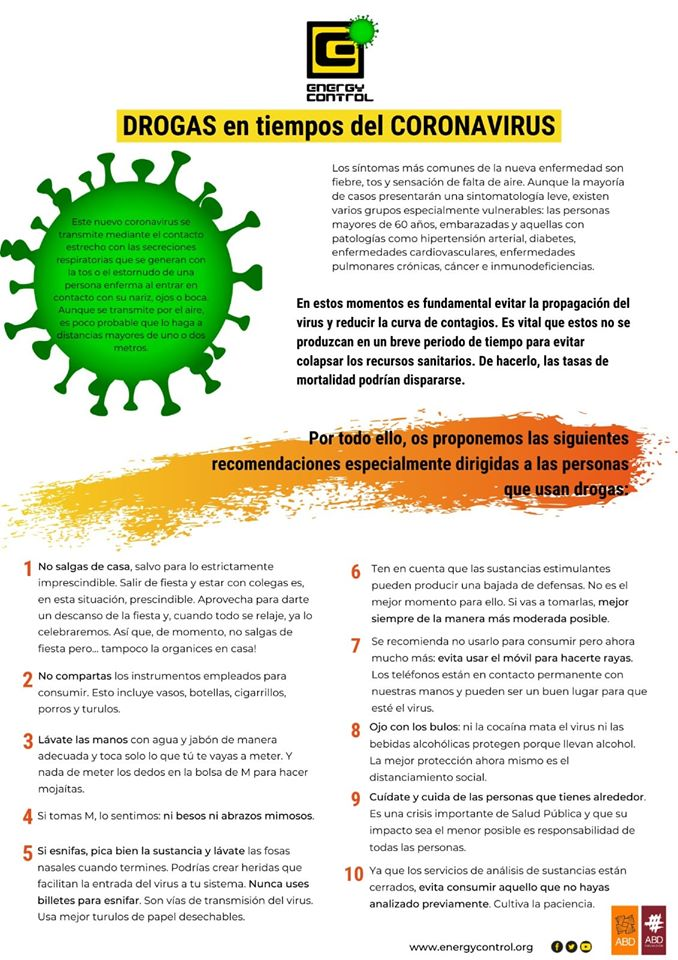
MARCH 18
WARSAW, Poland
Magda Bartnik, Prekursor Foundation
The OST programs are open – safety measures were introduced (one-by-one entry and one-on-one contact, distance with clients, staff members have to wear masks and gloves, ensure disinfection before entrance). OST patients receive methadone for 2 weeks period. Two existing harm reduction drop-in centres (in Warsaw and Cracow) were closed, due to government decision to introduce quarantine laws. They continue to operate outreach NSP programs, distribute sterile equipment and offer support and assistance on the ground. Clients receive needles and syringes for 4 weeks. Online and over a phone consultations are planned to start this week. Drop-in Centre in Cracow still distributes sterile needles, with minimal personal contact. Homeless shelters are open but with minimum staff and services and all facilities are implementing strict safety measures.
MARCH 17
PARIS, France
Lauren Collard, Fédération Addiction
In France drop-in centers and care centres have not been closed yet. But the collective actions (e.g. group meetings) are all cancelled and only one-on-one counselling/services are open. “We are currently negotiating with our health ministry to guarantee the continuity of OSTs prescription for the weeks to come,” says Ms. Collard. “It should be possible (I’m careful here) as the government ensured continuity in accessing medicine for chronic diseases.” The staff of harm reduction services work on securing the situation for homeless people, who are the most at risk population.
HELSINKI, Finland
Mika Mikkonen
Harm reduction centers are still open but with restrictions: drop-in/chill areas are closed, socialisation is not allowed, opening hours are shortened. OST centers remained opened for the time being.
BERLIN, Germany
Sasha Gurinova, Deutsche AIDS Hilfe
Harm Reduction services shall not be closed yet. There are some regulations to insure safety of workers and clients (no limits on requesting paraphenalia, distance between chairs etc.). The organisation of German drug users, JES, issued a letter to change the practice of OST services. The amended Narcotics Prescription Ordinance offers the possibility of supplying OST close to home, e.g. in pharmacies as well as the distribution through outpatient centers (also by non-medical staff). JES recommends to expand supply and bring it close to home for clients. This reduces the risk of this patient group and also frees urgently needed capacities in health care. DAH published recommendations for prison settings.
VILNIUS, Lithuania
Eliza Kurcevic, EHRA
The opening hours of NSP services are shortened, special measures are introduced (masks and medical gowns), premises are disinfected each 2 hours, more needles and syringes are distributed (previously it was 5, now 15 are given to people). The OST program at the Republican Center for Addictive Disorders decided to issue methadone for 7 days for all patient.
SPLIT, Croatia
Nevenka Mardesic, HELP
In Croatia the NGO HELP (Split), LET (Zagreb), Terra (Rijeka) and Institut (Pula) work with limited services. NSPs are still open with minimum staff and services. Advices and consultations are provided online or over the phone/mobile. Mobile units provide food, needle, syringes and condoms on the street using all safty measures wit very limited contacts with clients. OST is still working with no limitation, for now.
PORTO, Portugal
José Queros, APDES
Harm reduction teams follow the restrictions introduced by health authorities on limiting personal contacts and interactions. Therefore teams like GIRUGaia changed the schedule of its Methadone and Combined Therapeutic Program. Service providers face problems, such as the shortage of medication, such as liquid methadone, that is being replaced by pills. Another problem is the lack of availability of Naloxone, due to the fact that professionals were advised to avoid daily contact with drug users.
PODGORICA, Montenegro
Marija Mijovic, Juventas
The NGO Juventas did not shut down its drop-in centre but it decided limit personal contacts with people who visit. Field work is not cancelled but all safety measures are going to be implemented. Clients who are in need for psyhosocial support will be assisted in the drop-in centre but with safety measures. For those who are not in dire need, they will continue provide consultations online or over the phone.
BUDAPEST, Hungary
Peter Sarosi, RRF
There is no national policy or guidance on harm reduction services during the Covid-19 epidemic, service providers make their own decisions. Some of the drop-in centers have already closed down, most group meetings and consultations are cancelled, new admissions are rejected. The Artéra needle and syringe program decided to stay open in Budapest, with some restrictions (drop-in area closed, hand sanitizing). Clients who are referred to treatment centers by the police as an alternative of prosecution are concerned that they cannot fulfill the requirements and will be prosecuted. The Ministry said they are working to solve this problem. OST programs remain open for the time being.
The Ministry of Human Resources published guidelines for low threshold services during the Covid-19 epidemic. Unfortunately the guideline does not mention needle and syringe programs at all. Guidelines for OST are still missing.
MARCH 16
BARCELONA, Spain
Núra Calzada, Energy Control
Energy Contol closed all services, including the international drug checking service. Drug Consomption Rooms and needle and syringe programs are still open but with minimum staff and services. Shelters provide food on the street , outdoor, because they have closed the dining room. Contingency plans for the prevention and care of contagion are being implemented. Federations recommend to close down cannabis social clubs.
BUCHAREST, Romania
Nicoleta Dascalu, ARAS
The drop-in and the outreach services are closed – active IDUs who used to come to these services received last week syringes for 3 weeks. The two methadone centres are still open in their normal schedule and are preparing to give methadone for a longer period (6 to 13 days), with a prescription, but they are waiting for the methadone pills to come (there are some delays at the supplier). On Monday, the Romanian President declares a state of emergency – for the moment, we do not know what this will mean, but, if it restricts the right of circulation, this will raise serious problems for the people coming to the methadone services.
AMSTERDAM, Netherlands
Rafaela De Quadros Rigoni, Mainline
The drop in centers and DCRs (at least from De Regenboog Group) will remain open. Since the Dutch government just announced stricter measures for Covid-19 yesterday, more will be known in the next days. Most drug checking labs, however, are closing. The coffeeshops were closed as well (along with bars and restaurants).
ANTWERP, Belgium
Tessa Windelinckx, Free Clinic
The OST and NSP operated by Free Clinic stay open with minimum staff. Staff members have to wear face masks (and gloves), use alcogel to sanitise the hands of everyone who enters the services. They introduced one-by-one entry. “On Friday I did needle exchange outside, in the open air,” says Ms. Windelinckx.
ROME, Italy
Susanna Ronconi. Forum Droghe
OSTs, drop-in centers and outreach interventions keep working during the epidemic wherever the local authorities did not explicitly close them. They introduced some safety measures, such as the respect of distance with clients. Where harm reduction programs had to close, social workers and peers try to continue the distribution of sterile needles and naloxone through infomal networks, always abiding to the rules set by local authorities. “Homeless people face the greatest problems,” says Ms. Ronconi. “Many night shelters are closed and the most vulnerable people are at high risks. The virus makes evident the classism of our society.”
BRATISLAVA, Slovakia
Dominika Jasekova, Odyseus
For the last 2 weeks Odyseus ask all clients to sanitise hands. They hand out leaflets about Corona infections and consult with them about the risks and prevention methods. Staff members check the temperatures of clients. From today on, they are starting to handing out small dezinfecting gels. Later this week they will have masks – hopefully for the staff and clients too. The number of people inside drop-in has been limited. Today they are moving the services outdoor, in front of the building, because they don’t have windows in the drop-in. We were also dezinfecting all area of drop in every 30 minutes etc etc
“I hope we will be able to stay open and provide services,” says Ms. Jasekova. “It depends also on us, how we will manage to stay sane and healthy in these difficult times.”
SOFIA, Bulgaria
Yuliya Georgieva, Centre for Human Policy
The Bulgarian Ministry of Health didn’t have a position on harm reduction services, they can make their own decision whether to stay open or close down. The NSP operated by Initiative for Health Foundation in Sofia decided to close down its services until the 29th of March. OST programs are still open, with necessary precautions (masks, disinfenctants, one-by-one admission to services). The situation may change if services decide to close down.
NOVI SAD, Serbia
Nebojsa Durasovic, Prevent
“During the last few weeks, we have been distributing larger quantities of sterile equipment in the field and at the drop-in,” says Mr. Durasovic. “As of today, the drop-in is closed due to a state of emergency.” All services were closed by presidential decree, except pharmacies and food stores.
ZENICA, Bosnia-Hercegovina
Denis Dedajic, Margina
They implemented safety measures at the Margina drop-in centre in Zenica, which is the only NSP that remained open after the closure of the last Global Fund program ended. “Currently, none of our 1600 clients have any symptoms other than seasonal flu,” says Mr. Dedajic. “Our employees are the most exposed in the whole process. The warmer weather is coming and we are increasingly working in the field (although I don’t know how we are doing at all) and hopefully the epidemic will start to wane as huge efforts are being made to suppress or reduce it.”
OSLO, Norway
Arild Knutsen, The Association for Humane Drug Policies
Both drug consumption rooms are temporarily closed. A lot of low threshold are either closed or work with limited services. For example, care services and overnight shelters. NSPs are (to Mr. Knuten’s knowledge) still handing out syringes, but they are concerned that the municipalities will restrict or close these services too. However, the Health Directory posted a warning on its web-site that to close services is against the law. All drug user organizations sent a letter of concern to the Minister of Health. “We wrote him that we support closing down the society in general,” says Mr. Knutsen, “but we emphasize closing down harm reduction services will have the opposite effect.”
PRAGUE, Czech Republic
David Pesek, Sananim
In the Czech Republic at the moment all NSP and OST programs are still open. According to Mr. Pesek, these 2 interventions are the most important to keep open, under any circumstances. “Running HR services is a must in this times,” says Mr. Pesek. “The rest of the services are not so seriously needed in the time of the pandemic. It is natural that people are getting infected and this will continue, for me its definitely not a reason to stop NSP or OST. We need to lower the risk as much as possible but at the end we can not stop interventions that are so important for people.”
The majority of one-on-one consultations are still open (counselling etc.). Sananim cancelled all group activities and meetings. It is mandatory to use desinfection before entrance to any facilities. They ventilate the rooms every 1-2 hours. They have to consider that many people who use drugs suffer from premature aging and are more vulnerable. Inpatient services banned any visits from outside. Outreach services are working with no restrictions. “Today Sananim organises crisis coordination meetings for its staff, so maybe things will change,” says Pesek.
LISBON, Portugal
Marta Pinto, researcher, Marta Borges, ISS, Adriana Curado, GATS
“I think every unit is doing what thinks best (besides common generic contingence plans like providing isolation rooms and so on),” says Ms. Pinto. According to her, now the negative consequences of the dismantling of SICAD, the government’s drug agency are obvious. No general guidelines are being provided about OST and each unit decides individually. But some services allow take home medications for longer periods (like a month). Most of them send prescriptions and other documents by phone/e-mail.
Peter Sarosi, Drugreporter
